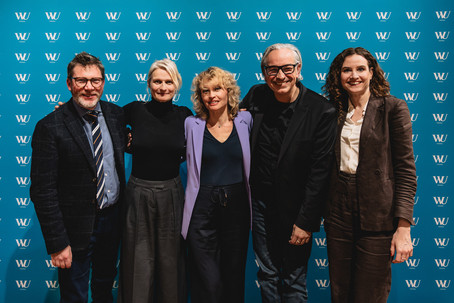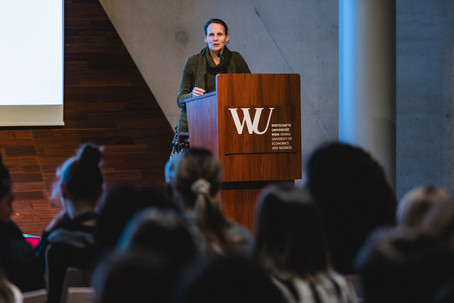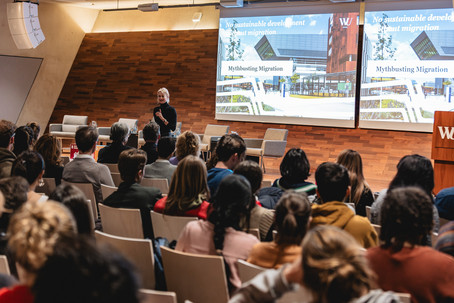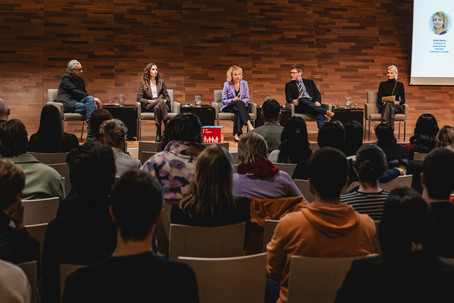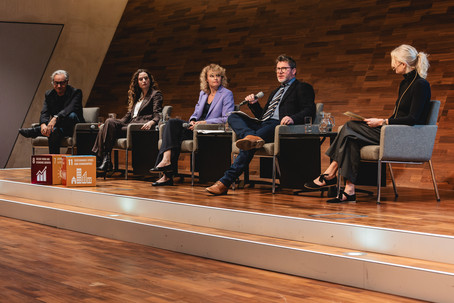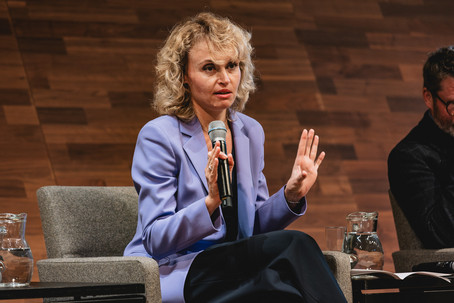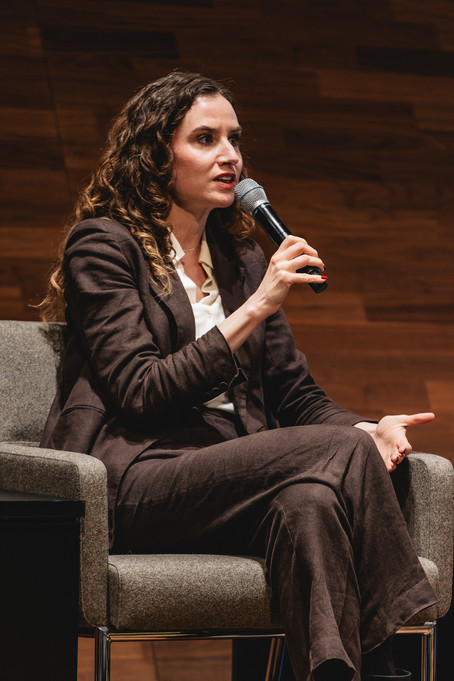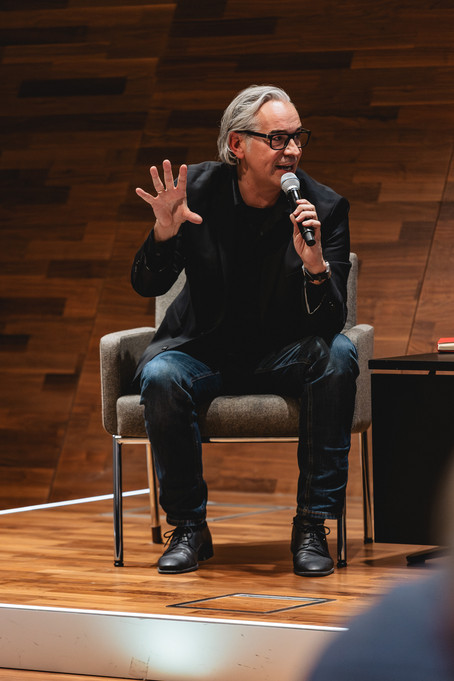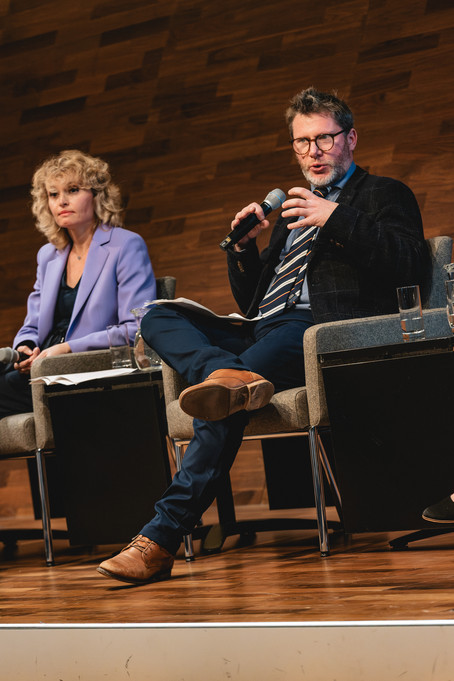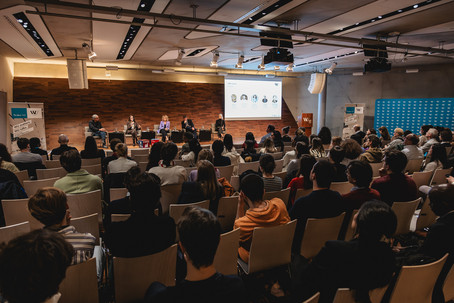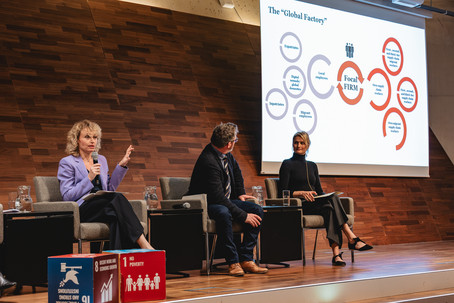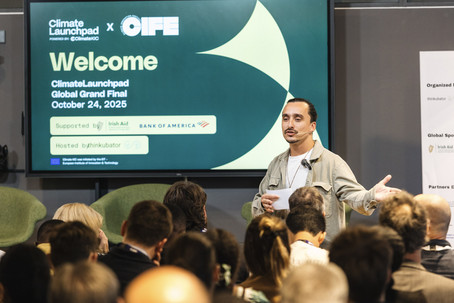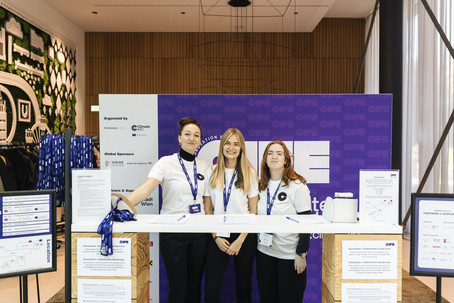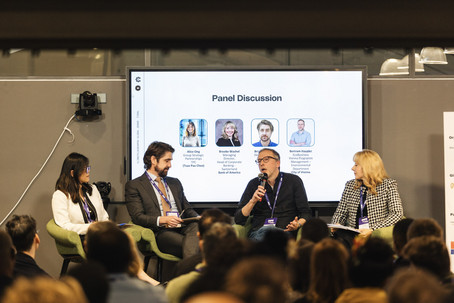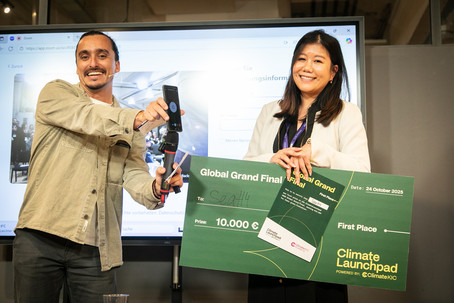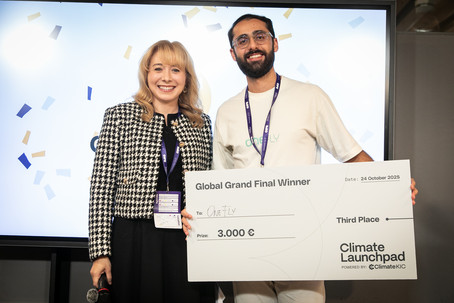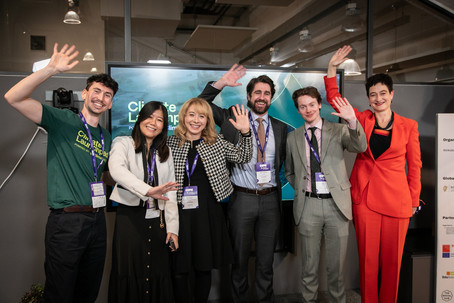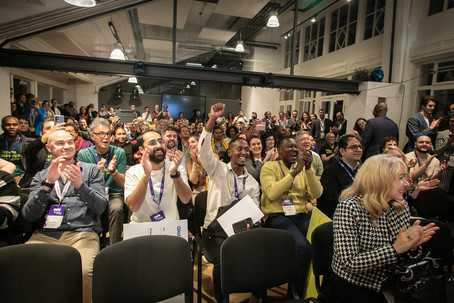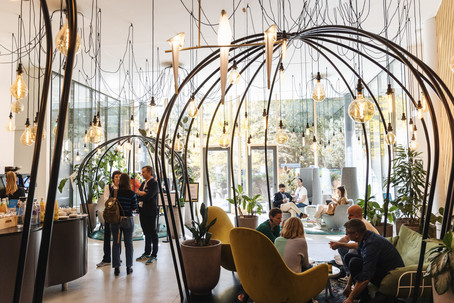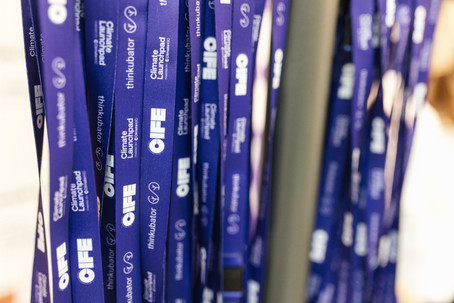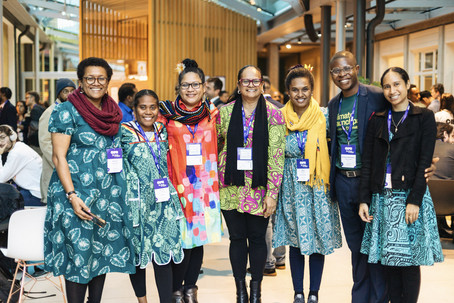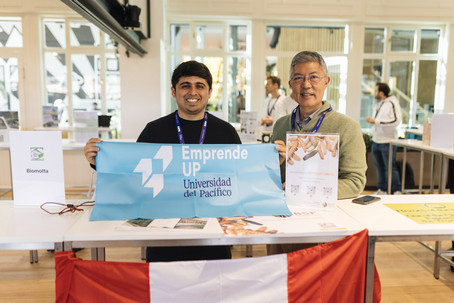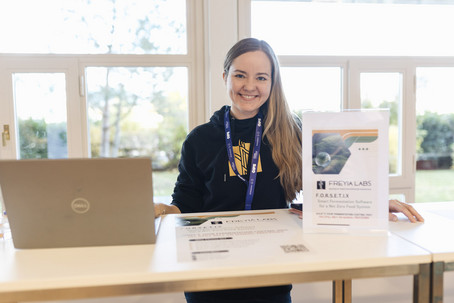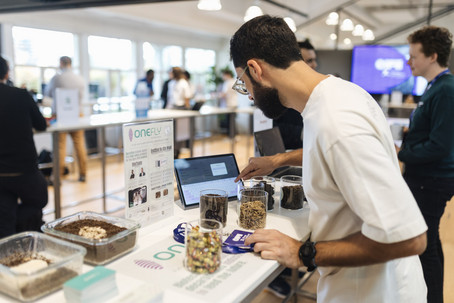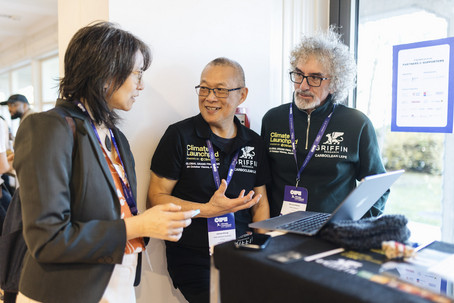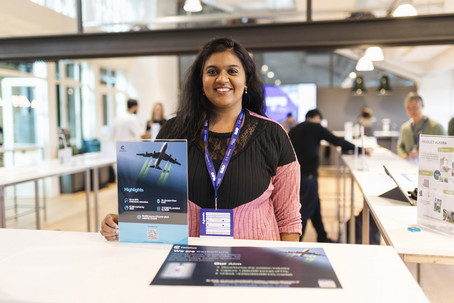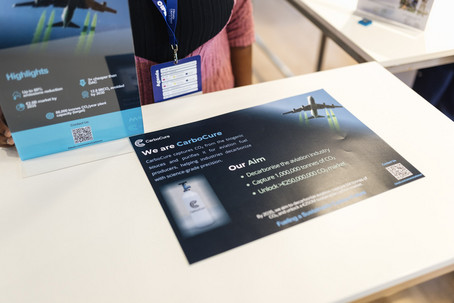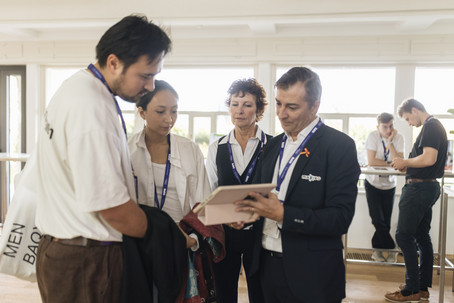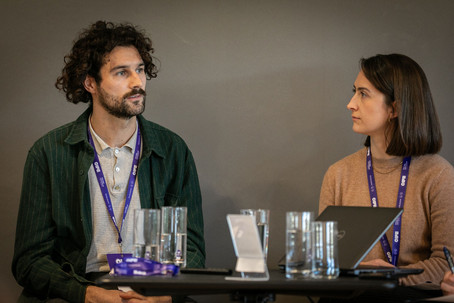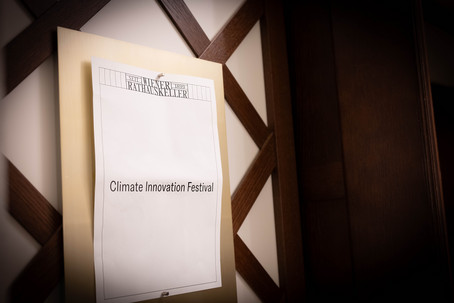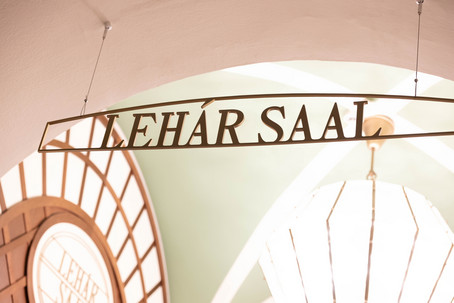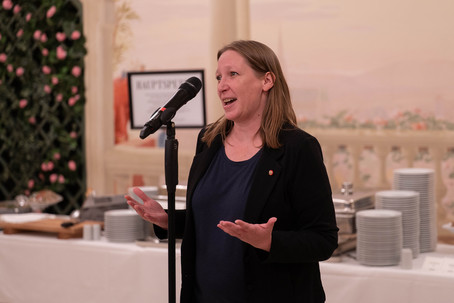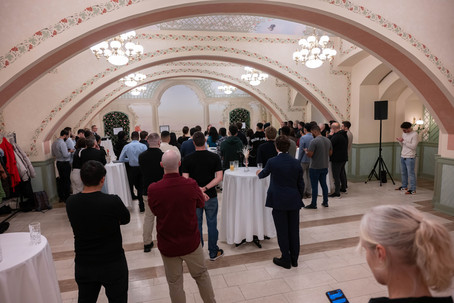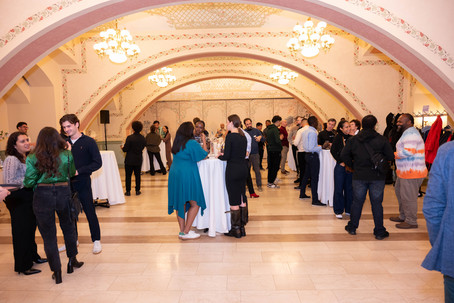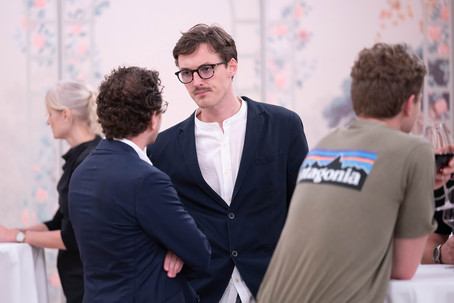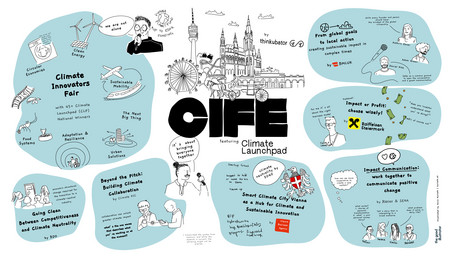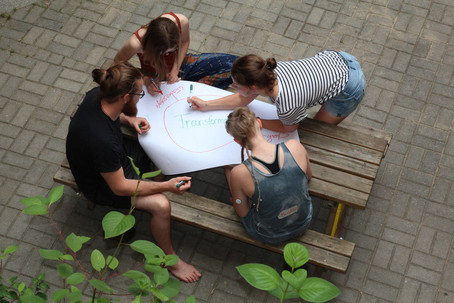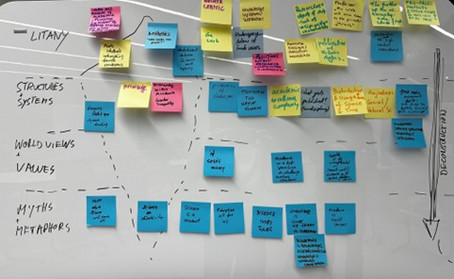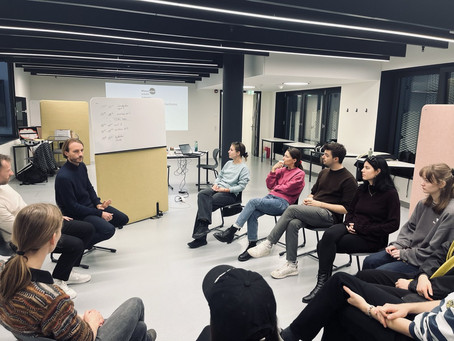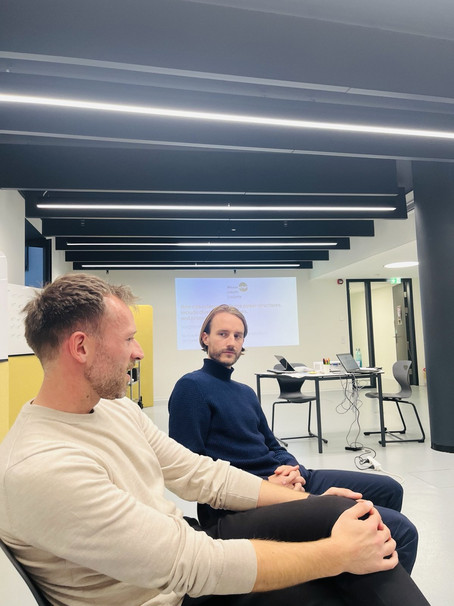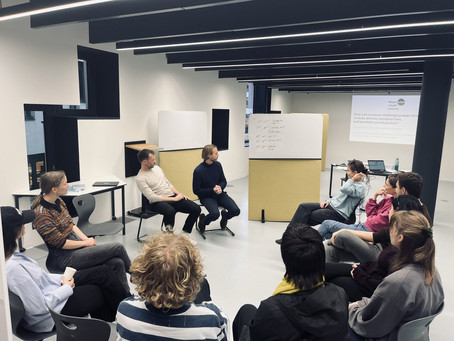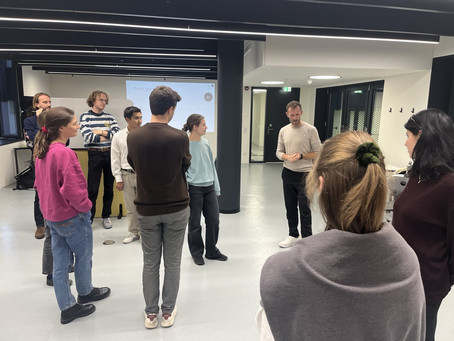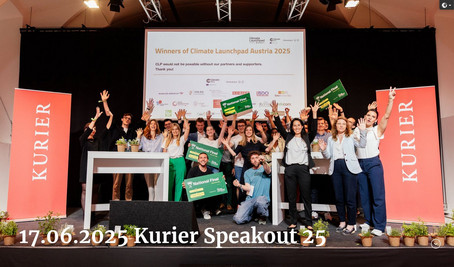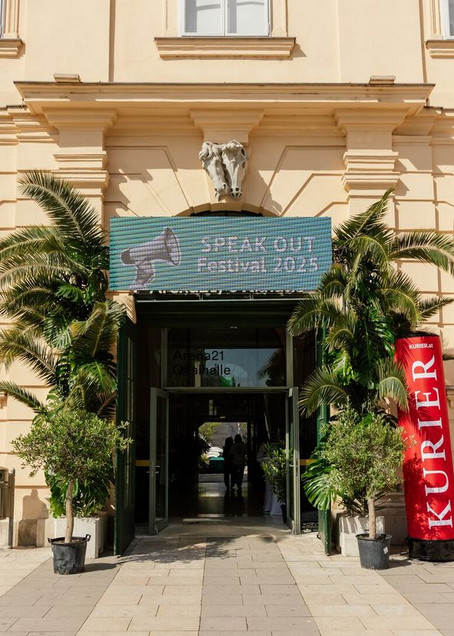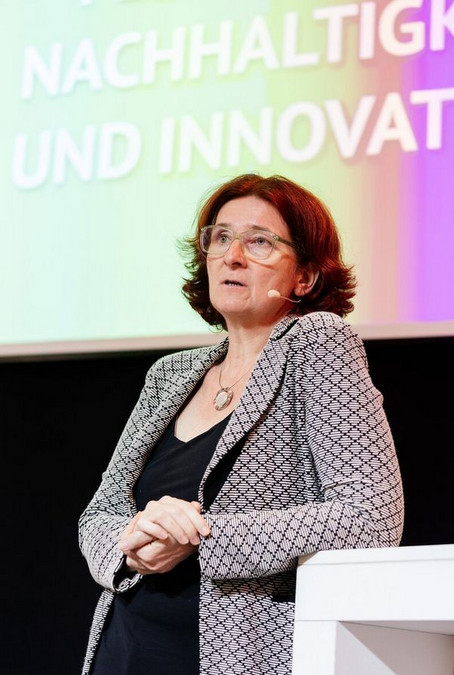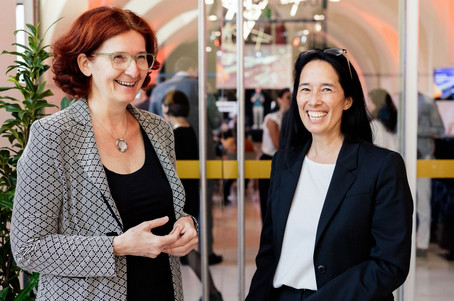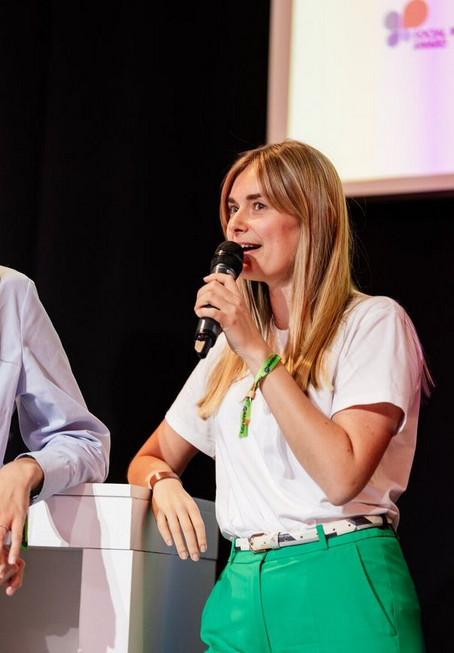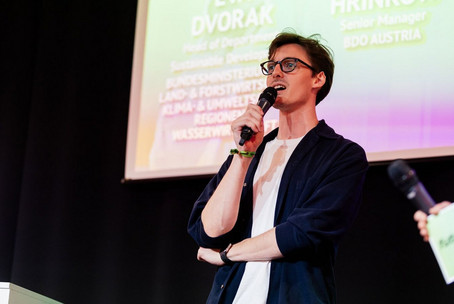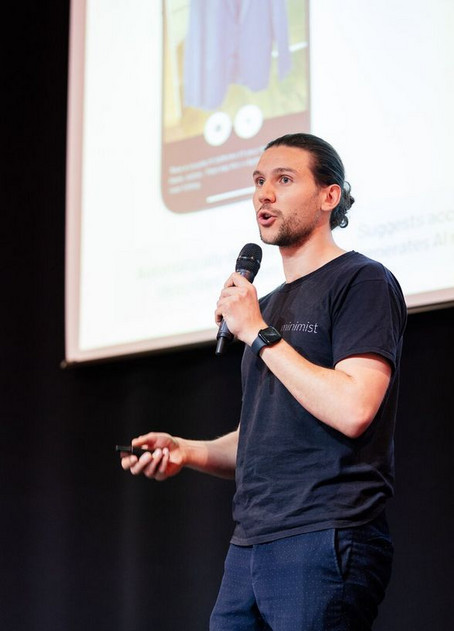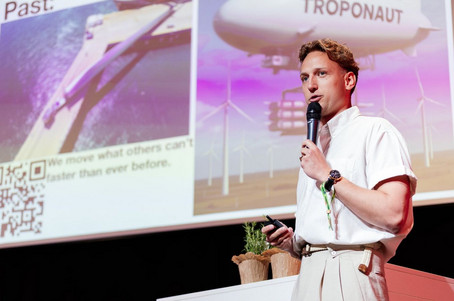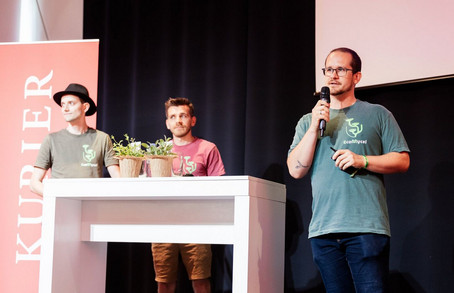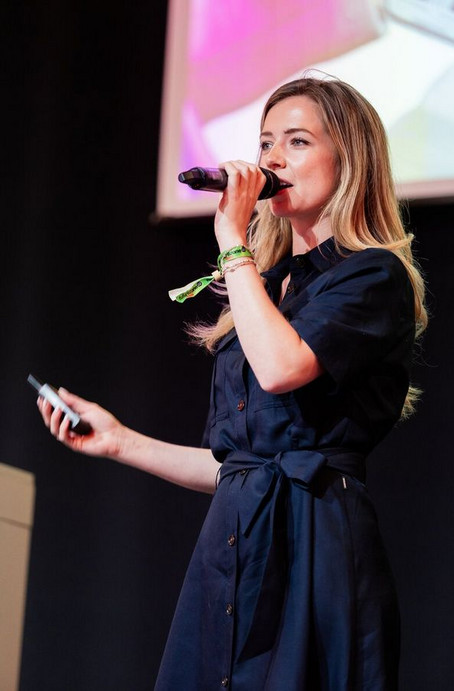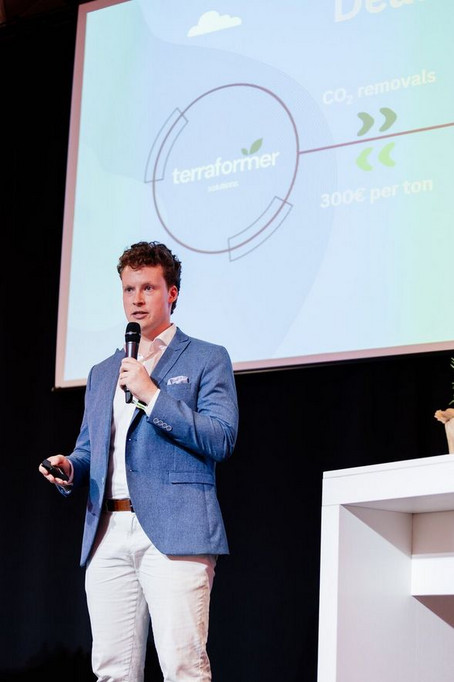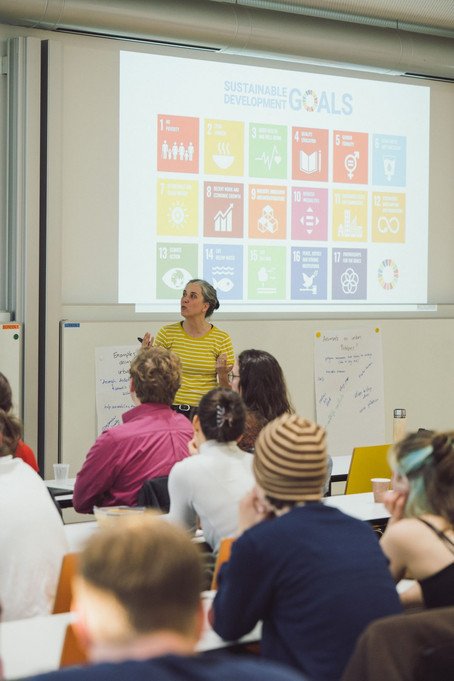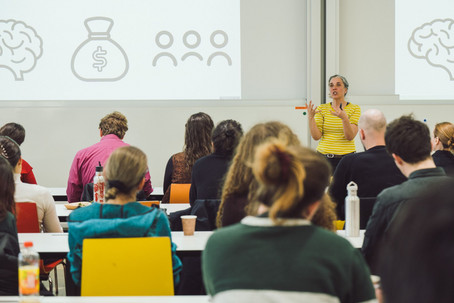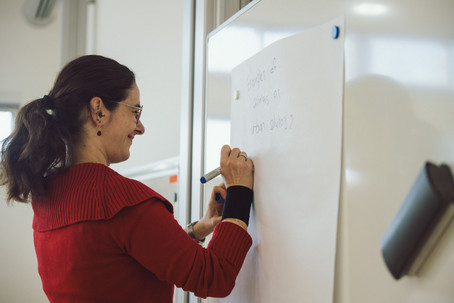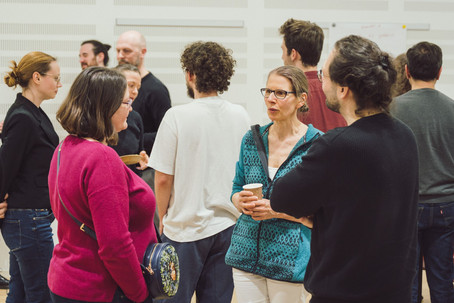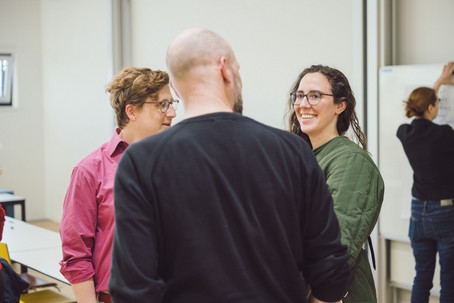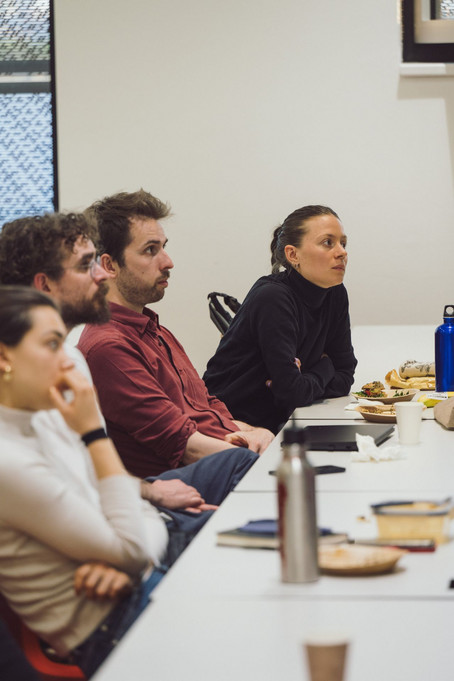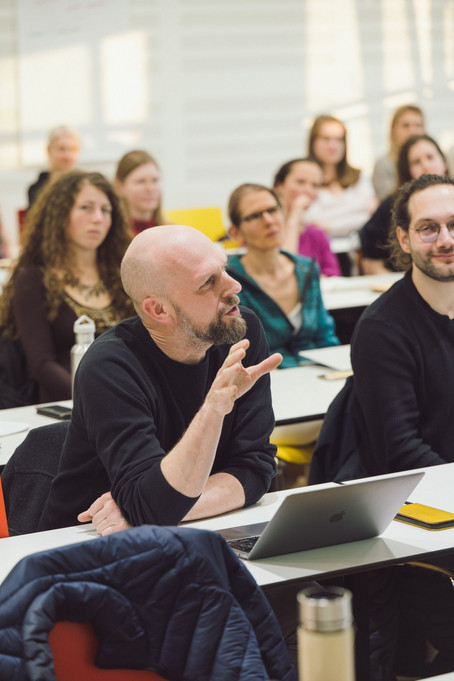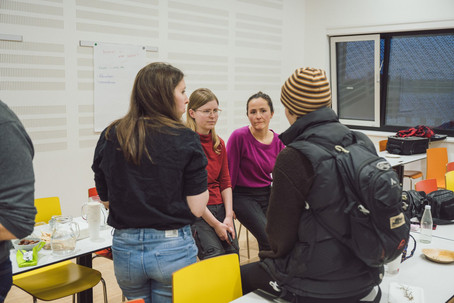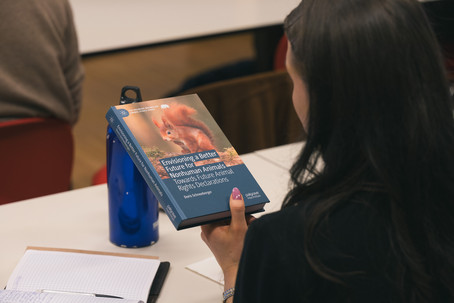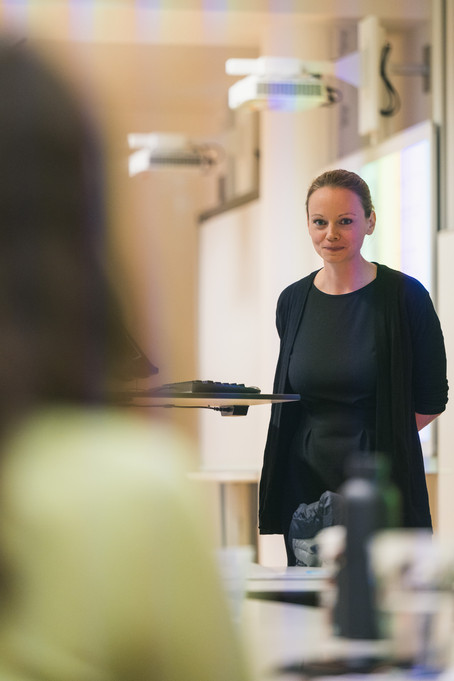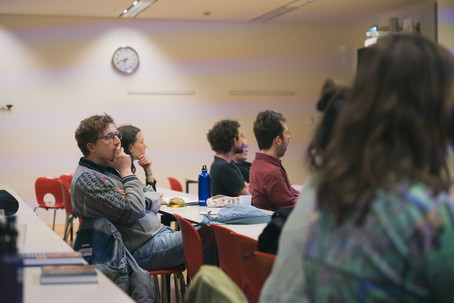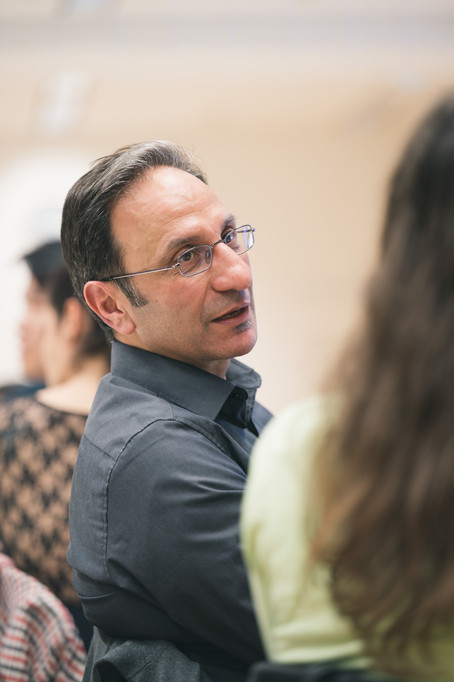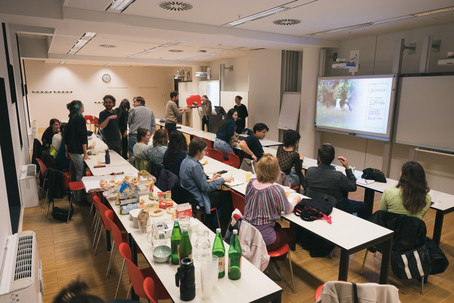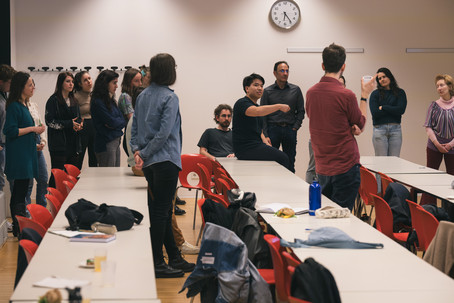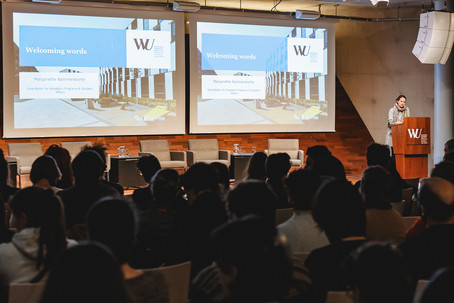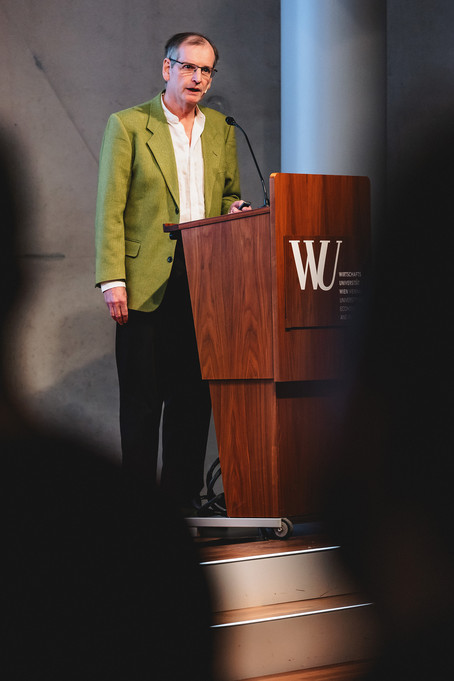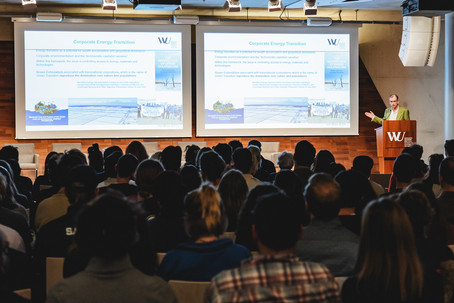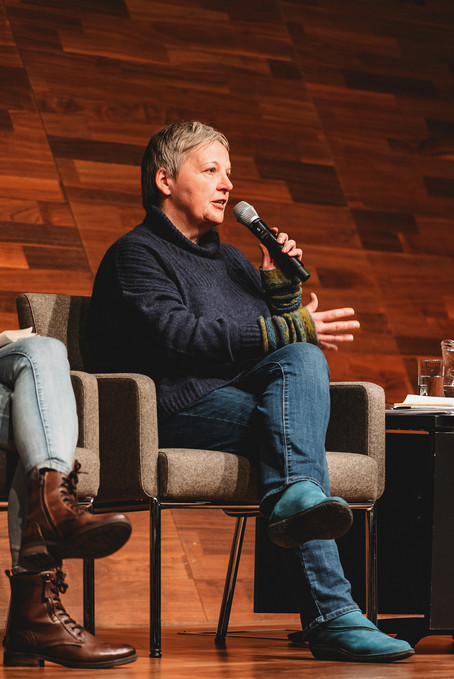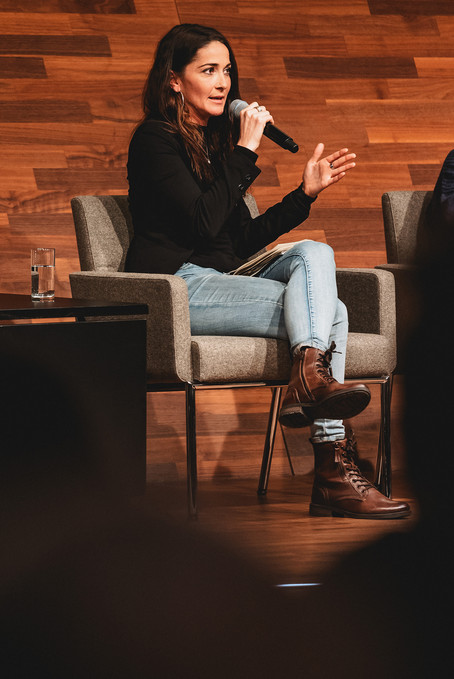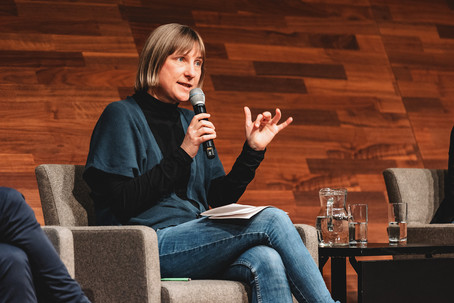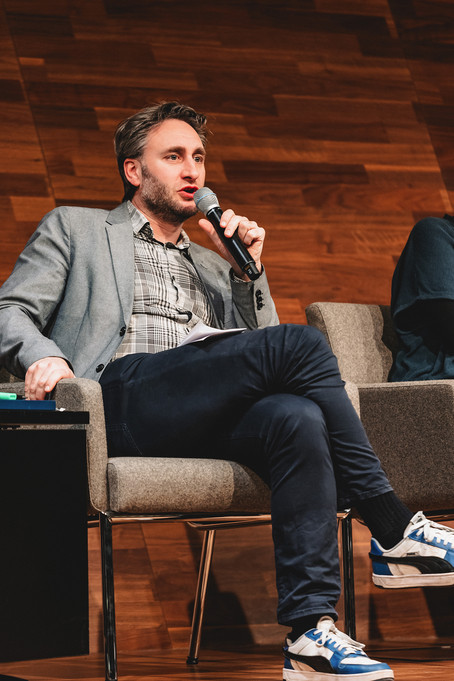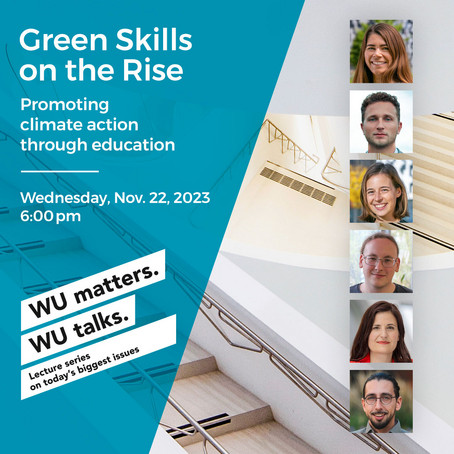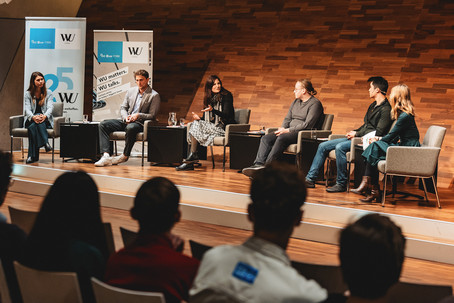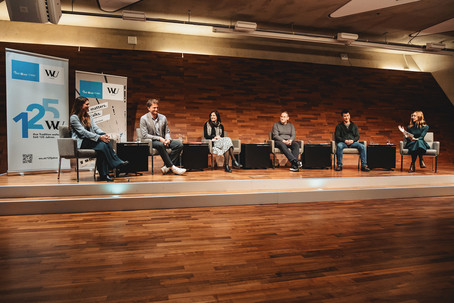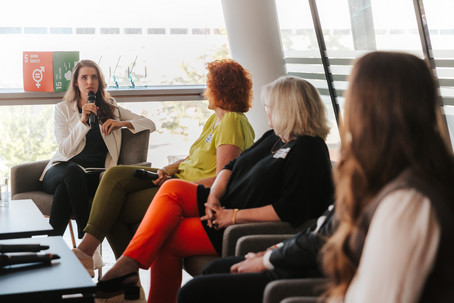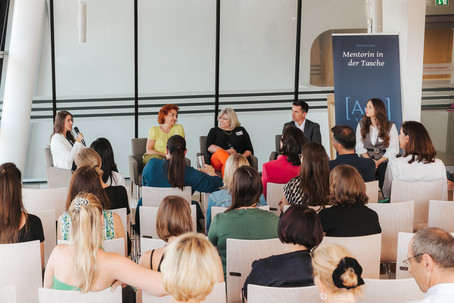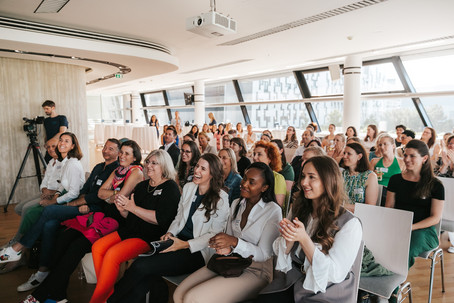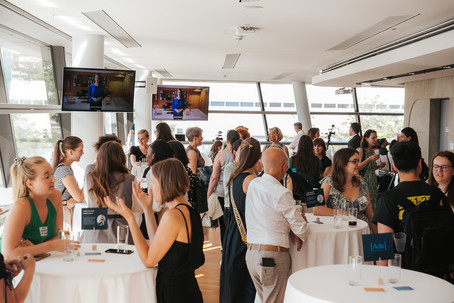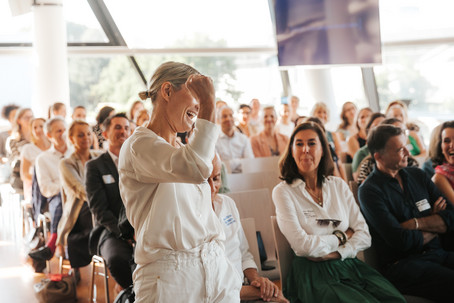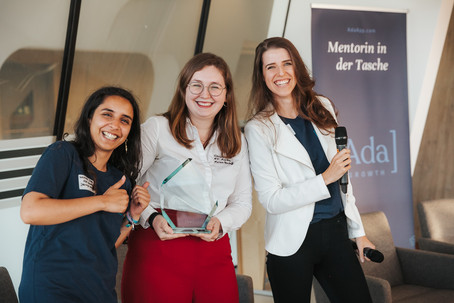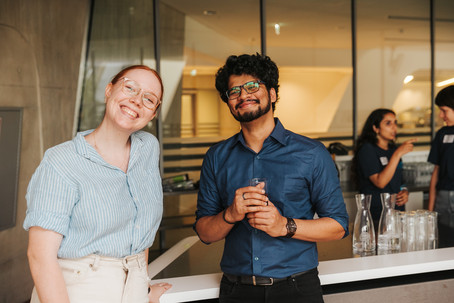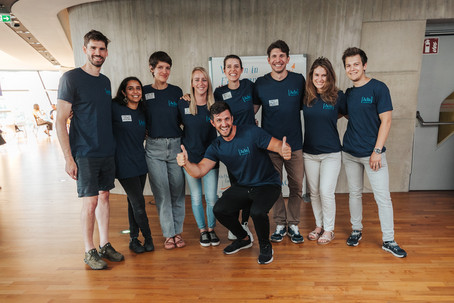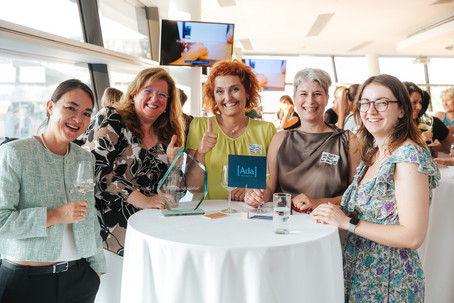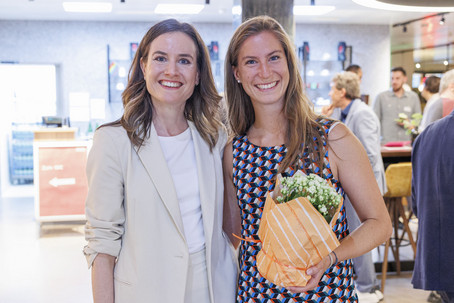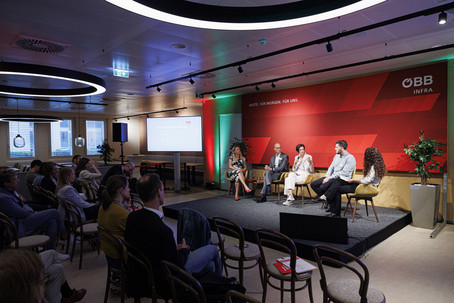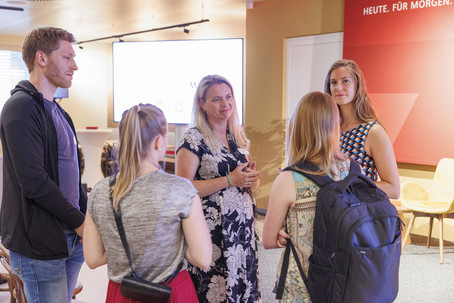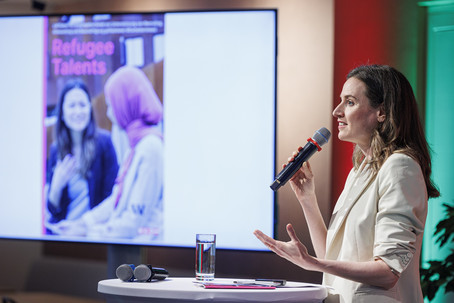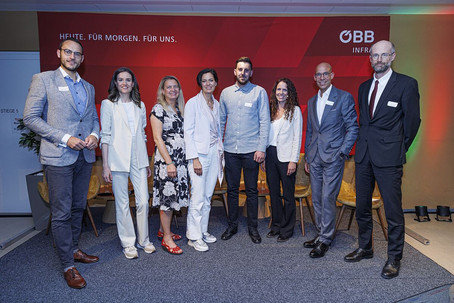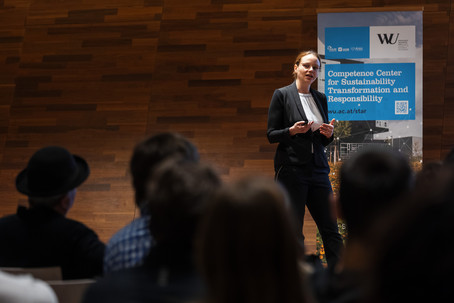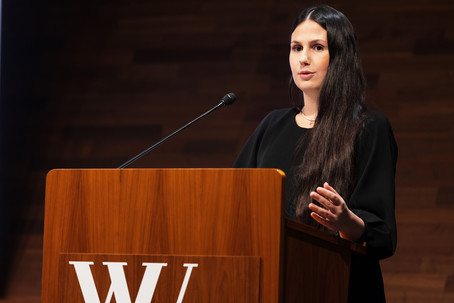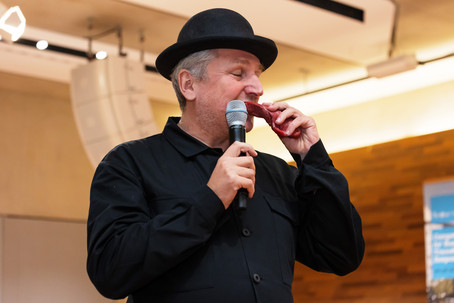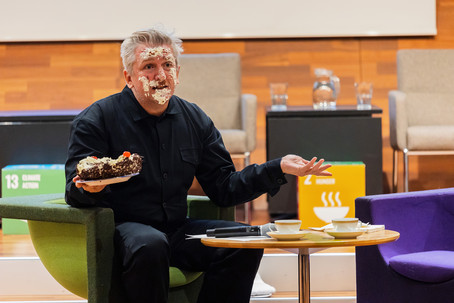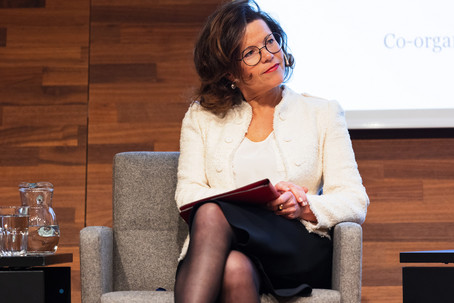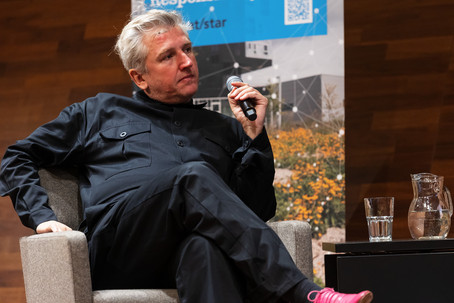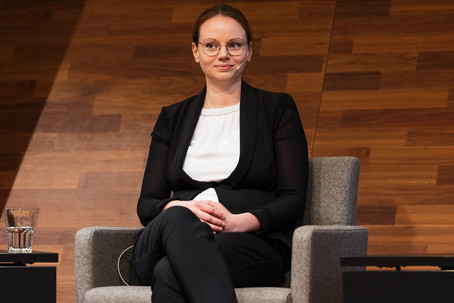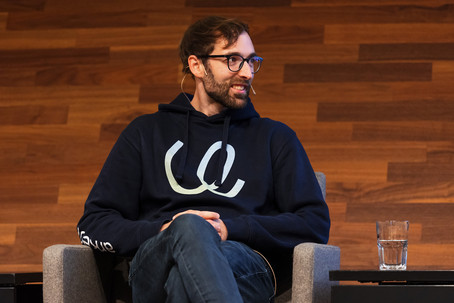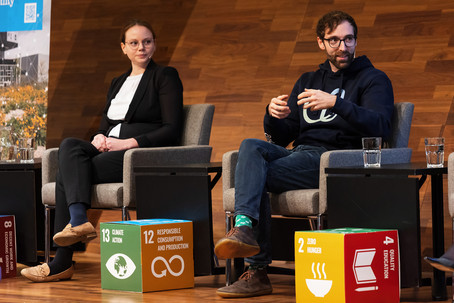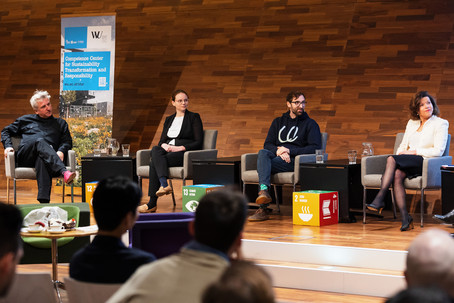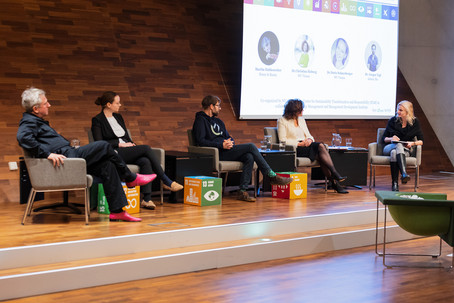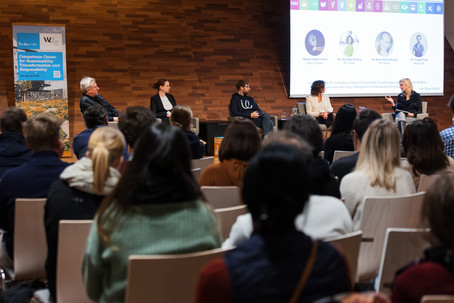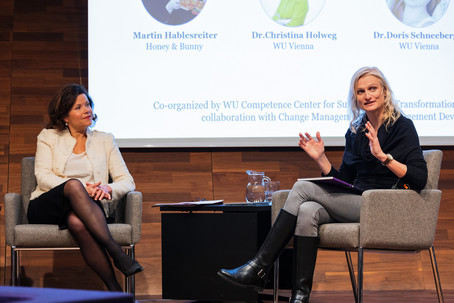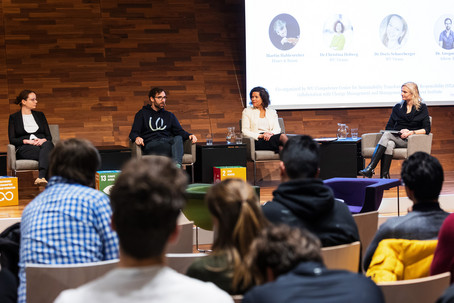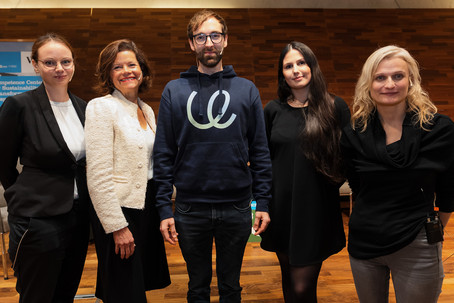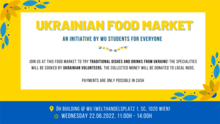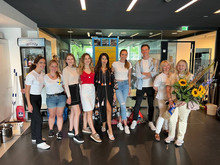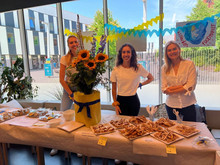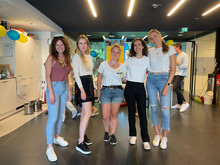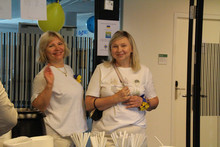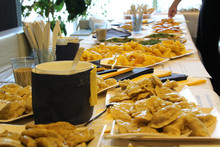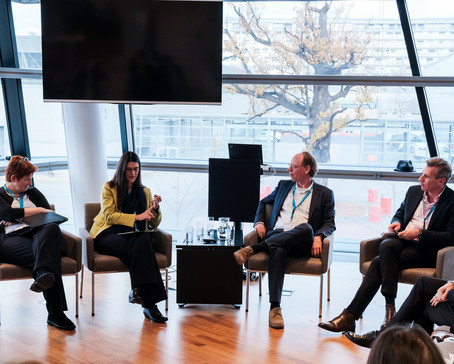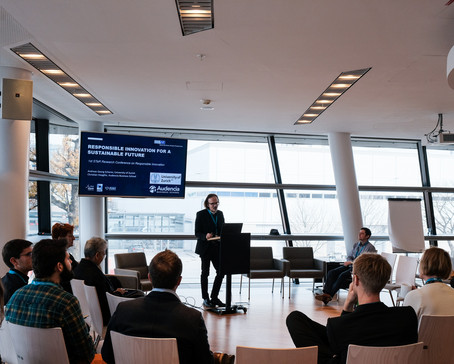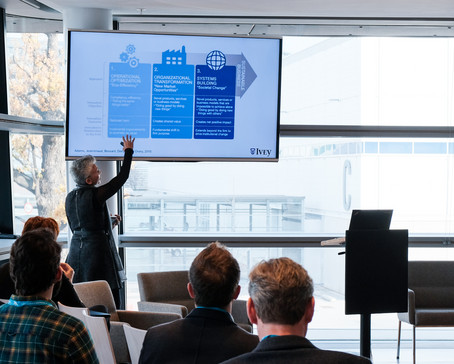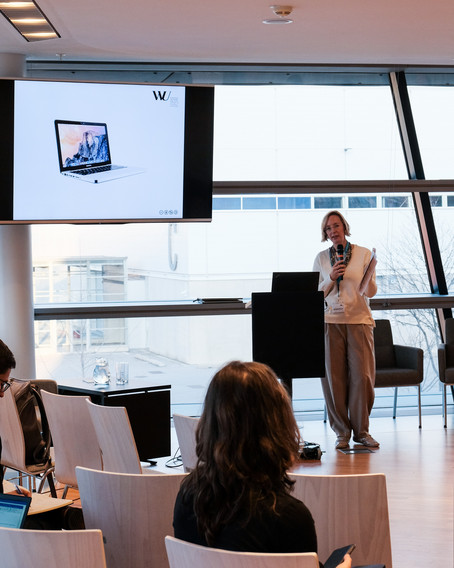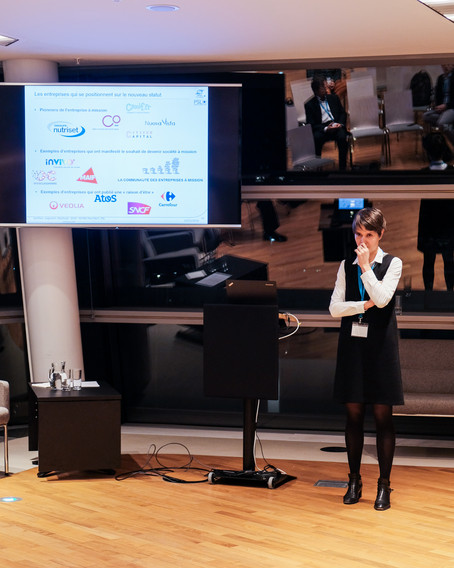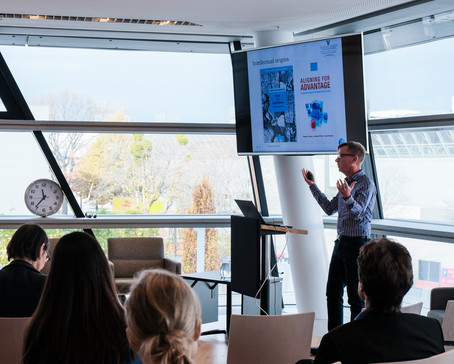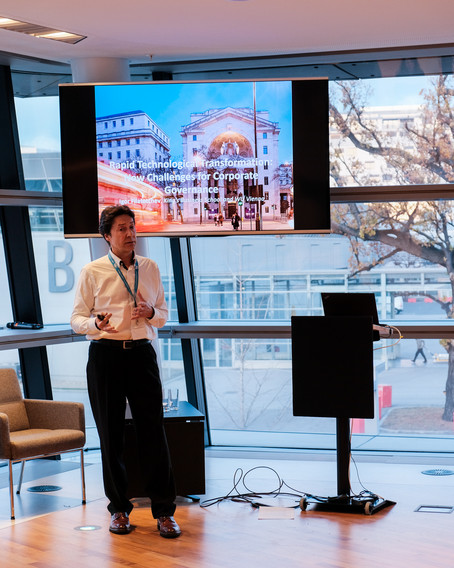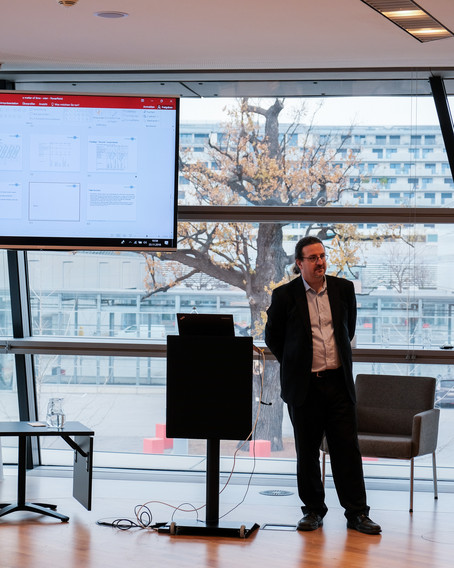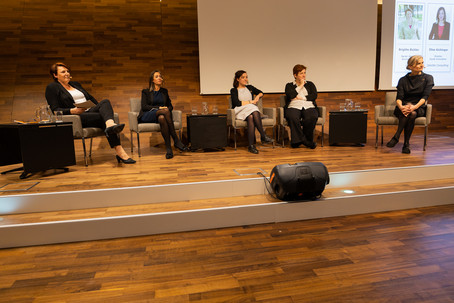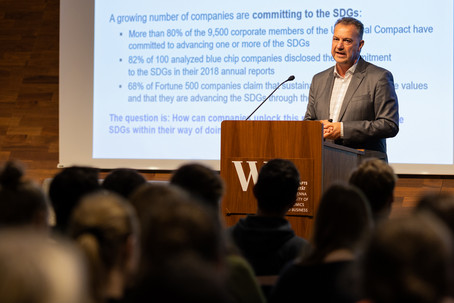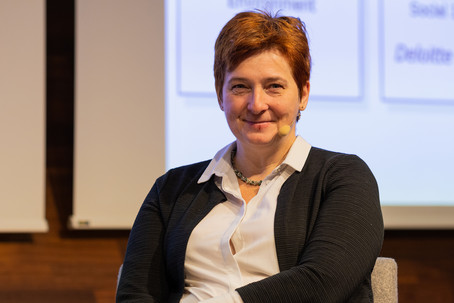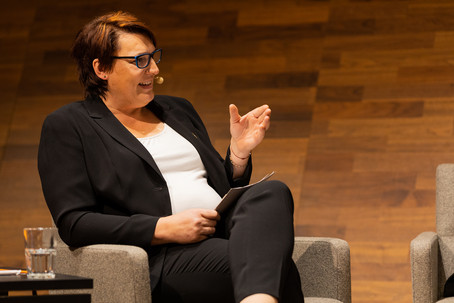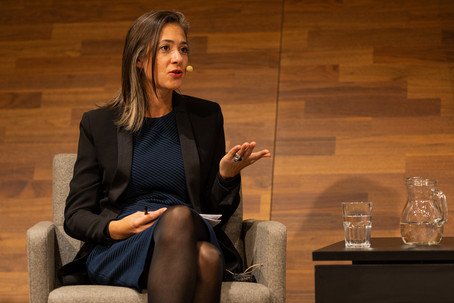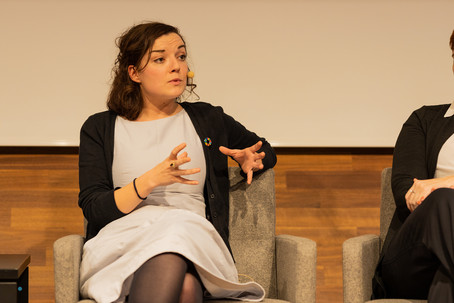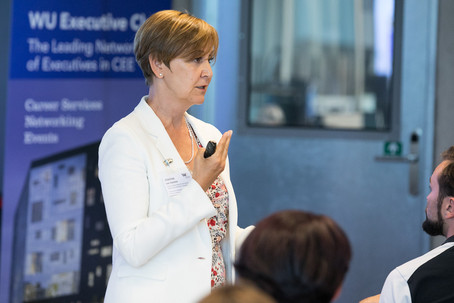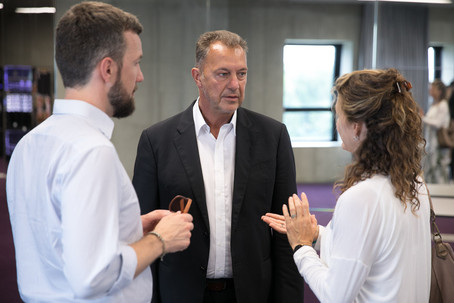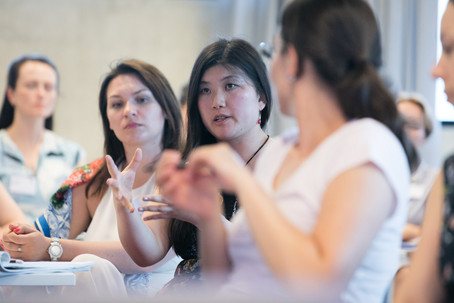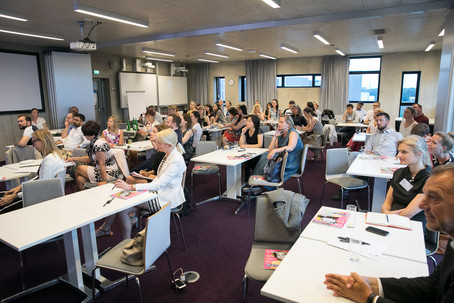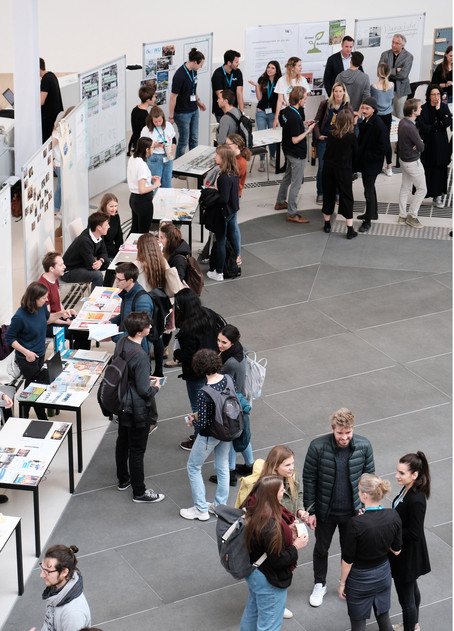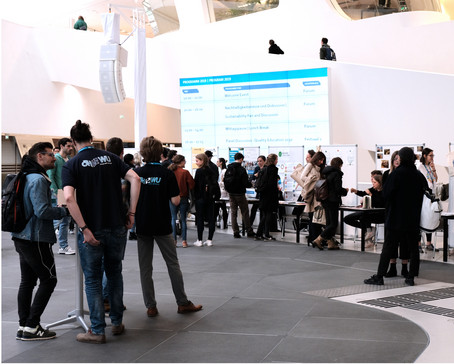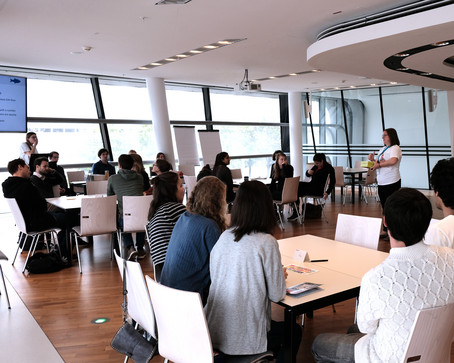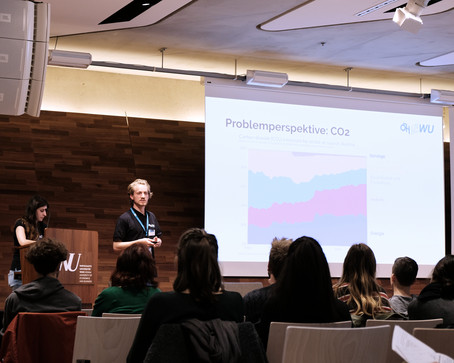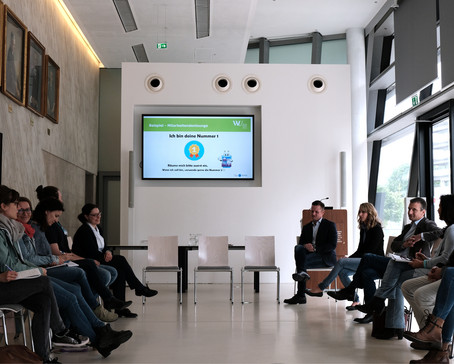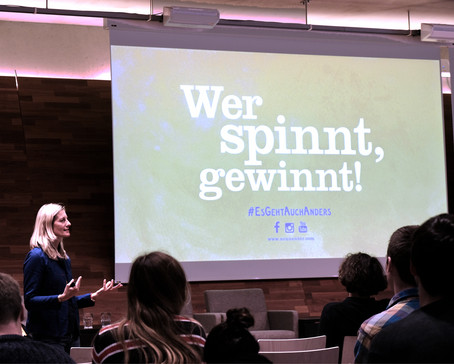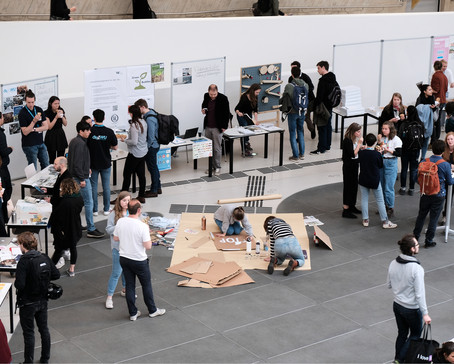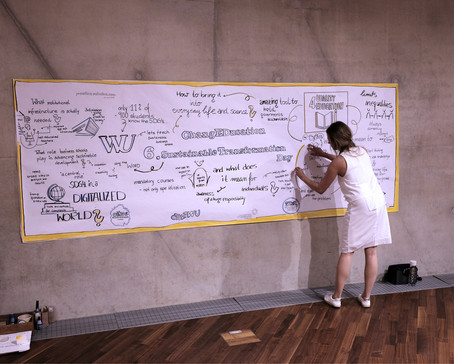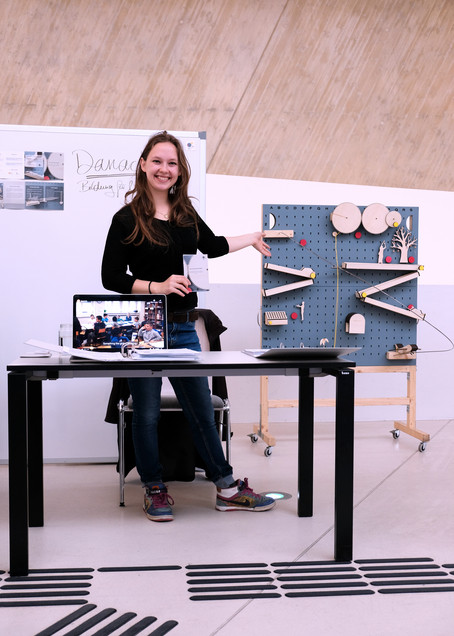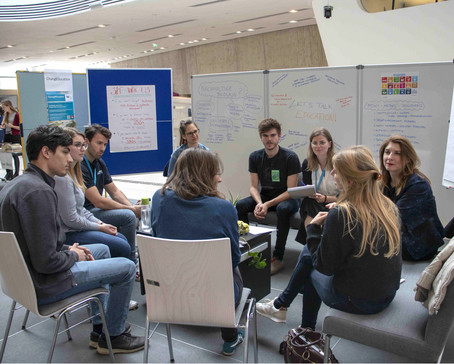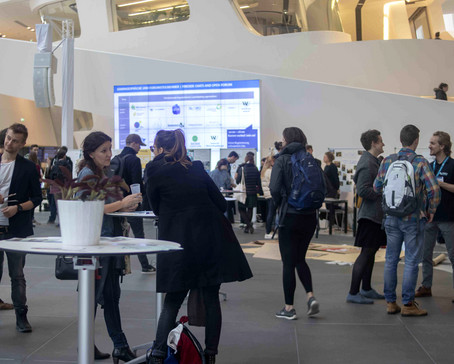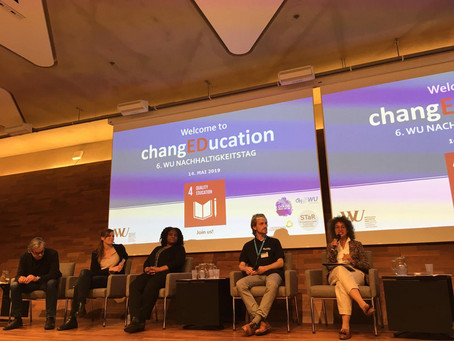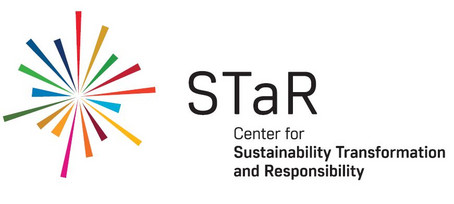STaR Photo Archive
Scroll down the page to explore all available content. Please note that only our larger events, which include event photography, are featured on this site. For information on all STaR events and initiatives at WU, please visit our News Archive, accessible via the link at the bottom of our homepage.
Be sure to also check out our STaR Video Archive.
Mythbusting Migration (November 19, 2025)
No sustainable development without migration
Few topics have received so much public attention and yet have been so widely misunderstood as international migration. Migration is embedded in the UN Sustainable Development Goals – but what does that mean? Do we live in an era of mass migration? Does migration exacerbate issues such as brain drain, inequality, and social tensions? Will climate change bring about another refugee crisis? And what role do businesses play in the realm of migration and sustainable development?
Expert Panel:
[Alphabetical order]
Jesús Crespo Cuaresma, Professor of Macroeconomics, WU Vienna
Jason Gagnon, Senior Development Economist and International Policy Advisor
Aida Hajro, Professor of International Business, University of Leeds
Judith Kohlenberger, Head of the Research Institute for Migration and Refugee Studies and Management, WU Vienna
Keynote & Moderated by:
Milda Žilinskaitė, Competence Center for Sustainability Transformation & Responsibility (STaR), WU Vienna
Click here to read the event summary on the WU blog.
ClimateLaunchpad Global Finals (October 23-24, 2025)
ClimateLaunchpad (CLP) is the world's largest competition for early-stage green business ideas, launched in 2014. The program supports the development of innovative solutions to combat climate change and accelerate the transition to a more sustainable economy.
After years of online finals only, the CLP Global Grand Final was held for the first time in person in Vienna—adjacent to WU's campus—on October 24th, as part of the Climate Innovation Festival (CIFE) program. It brought together sustainability innovators from 45+ countries, changemakers, investors, and visionaries for a startup fair, keynotes and breakout sessions with experts.
The event was organized by Thinkubator.earth, an interdisciplinary think tank founded by two WU alumni (our former students). STaR has closely collaborated with the Thinkubator team since its founding—including support for CLP—and we are delighted to have been involved again in 2025.
Workshop on Transformative Science (October 23, 2025)
How can research challenge power structures, include diverse perspectives, and promote social justice?
This was the guiding question of the workshop, which took place on the 23rd of October with the participation of Master’s and PhD students from WU and Uni Wien, who explored the core ideas of transformative and transdisciplinary science. Alongside the core discussion on the societal role of science and academic institutions, the workshop offered a reflection on structural constraints, including the care work of early career researchers.
Facilitators: Marco Kellhammer and Jan Freihardt, both active members of the association Wissenschaf(f)t Zukünfte e.V., which connects students and early-career researchers interested in transformative science. In 2021, they published the book Draußen ist es anders. Auf neuen Wegen zu einer Wissenschaft für den Wandel.
Organizers: WU SEEP-students Filipa Reis and Elisabeth Hartmann, with support from STaR.
ClimateLaunchpad National Finals (June 17, 2025)
The three winning teams (out of nine highly competitive and innovative pitches) of this year's National Finals were announced at KURIER’s Speak Out Festival.
ClimateLaunchpad (CLP) is the world's largest competition for early-stage green business ideas, launched in 2014. The program supports the development of innovative solutions to combat climate change and accelerate the transition to a more sustainable economy.
In Austria, CLP is run by Thinkubator.earth, an interdisciplinary think tank founded by two WU alumni. STaR has closely collaborated with the Thinkubator team since its founding—including support for CLP—and we are excited to be involved again this year.
The three winning teams (out of nine highly competitive and innovative pitches) of this year's National Finals are: Minimist, Ecomycel, and Troponaut.
To read more about the event, take a look at the articles by brutkasten and futurezone.
Animals as Urban Problems and Solutions (April 8, 2025)
Lecture Series by Vienna Animal Studies Group, in collaboration with Transfarmation Austria and STaR
The second, highly attended, talk in the Summer Lecture Series run in collaboration by the Vienna Animal Studies Group, Transfarmation Austria, and STaR was given by Dr. Claudia Hirtenfelder (WU Vienna).
Her presentation addressed how animals can be treated in urban policy as problems to be managed but also as solutions to mitigating the effects of climate change.
These topic are relevant not only for SDG14 Life on Land and SDG15 Life Below water, the only two SDGs that explicitly mention animals, but they also—as explicated by the speaker—could and should be considered in SDG 11, Sustainable Cities and Communities.
The lecture was followed by discussion and networking.
Envisioning a Better Future for Nonhuman Animals (March 12, 2025)
Lecture Series by Vienna Animal Studies Group, in collaboration with Transfarmation Austria and STaR
We kicked off the Summer Lecture Series for the Vienna Animal Studies Group with Doris Schneeberger (WU Vienna) discussing her recently published book, Envisioning a Better Future for Nonhuman Animals: Towards Future Animal
Rights Declarations.
The presentation introduced an ethical discussion on potential future Universal Declarations of Animal Rights. Such a declaration could enhance human well-being by reducing the risk of zoonotic diseases, promoting sustainable agriculture, and encouraging responsible consumption. Of course, this would also have massive repercussions for Life on Land and Life Below water, the only two SDGs that explicitly mention animals.
The talk further explored various interpretations and justifications of animal rights, arguing that because nonhuman animals are individuals with intrinsically valuable lives, their well-being and welfare should be protected.
The lecture was followed by discussion and networking.
Destroying Nature to Save It (January 15, 2025)
STaR event at the WU Matters WU Talks
WU Matters WU Talks event that attracted over 300 participants…
Our joint STaR-RCE Vienna event at the WU Matters WU Talks event series addressed this and other burning sustainability education questions. We invited experts from across disciplines as well as from the private and the public sector to discuss their views on the demand for and opportunities of green skills.
The keynote by Clive L. Spash, Chair of Public Policy & Governance at the Institute for Spatial and Social-Ecological Transformations, Department of Socioeconomics,addressed the economic fallacies of the green transition. This was followed by a panel discussion with Ursula Bittner (Spokesperson and Economic Expert, Greenpeace),Jutta Kill (Researcher and Activist, World Rainforest Movement (WRM)), Vincent Liegey (coordinator of Cargonomia, Degrowth research and experimentation cooperative), and Christina Plank (Researcher, Institute for Development Research, BOKU University).
The panelists discussed a range of critical topics, including the interconnected social, ecological, and economic crises humanity is facing. They explored how strategies for economic transition, such as Green Deals and energy transitions, remain confined within the framework of the growth economy. The discussion also raised questions about whether trading new environmental commodities, like carbon permits and biodiversity credits, is an effective response to ecosystem destruction and the mass extinction of species. Finally, together with the audience, the panelists questioned whether a fundamentally new economic paradigm is needed to drive systemic transformation, and what alternative economic systems might be required to bring about genuine change.
We would like to thank our wonderful moderator, Ines Omann, and the engaged audience for their thought-provoking questions and for staying well beyond the original schedule. We believe this gesture in itself is an indirect answer to the final panel question: "How does one stay positive in this line of work?"
Green Skills on the Rise (November 22, 2023)
STaR/RCE Vienna event at the WU Matters WU Talks
As we navigate through a changing climate and rapid globalization, integrating knowledge from diverse fields becomes essential. What does that mean for secondary and tertiary education?
Our joint STaR-RCE Vienna event at the WU Matters WU Talks event series addressed this and other burning sustainability education questions. We invited experts from across disciplines as well as from the private and the public sector to discuss their views on the demand for and opportunities of green skills.
Keynote & Panel Discussion
Marie-Sophie Attems, Deputy Head of RCE Vienna & Senior Scientist, WU Vienna
Panel:
Serafin Gröbner, Deputy Head of Department V 9 – Sustainable Development, Federal Ministry for Climate Action, Environment, Energy, Mobility, Innovation and Technology, BMK
Bernadette Kamleitner, Vice-Rector for Research and Third Mission, WU Vienna
Kacper Koszarek, Chair of Psychologists for Future Austria
Kyle Yong, Co-founder of Energy Track
Moderated by:
Laura Hohoff, Sustainability Education Specialist
The recording of the event is now available on Youtube: https://www.youtube.com/watch?v=vr-o5uAcJ8U
Elevators: Women in Economy (June 29, 2023)
STaR X ADA
We are thrilled to share the success of our recent event organized in collaboration with Ada Growth, the leading female empowerment app. Held at our WU campus, this event brought together brilliant minds and ignited discussions on driving gender equality in the workplace.
We would like to express our appreciation to the Ada Growth team, the great people behind the app. We were grateful for the opportunity to work together in bringing this event to reality. We are truly grateful for their hard work before and throughout the event. Their mission is greatly related to SDG 5, Gender Equality, thus we are grateful to collaborate and help them any way we can.
We would like to express our heartfelt appreciation to all the organizers, panelists, and attendees who made this event a resounding success.
Refugee Talents (June 27, 2023)
Brochure Launch at the Austrian Federal Railways (ÖBB)
To read the post-event article by ÖBB, click here [in German]
Revolution in the Food industry: The Rise of Food Tech (Dec 7, 2022)
WU Matters WU Talks
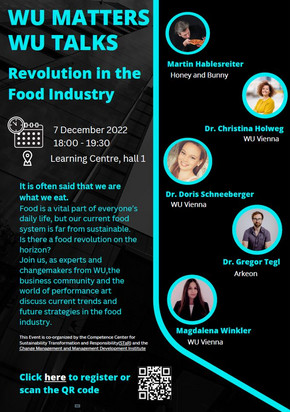
It is often said that we are what we eat. Food is a vital part of everyone’s daily life, but our current food system is far from sustainable. Lessening meat production and food waste have been shown to reduce our carbon footprint and increase societal well-being. Are research and business partnerships the solution for scaling up radical innovations in the food industry and achieving the SDGs? Is there a food revolution on the horizon? Experts and changemakers from WU and the business community will discuss current trends and future strategies.
Organized by STaR, in collaboration with Change Management and Management Development Institute.
To watch the recording of the event, click here
Speakers’ & Panelists’ bios:
Martin Hablesreiter
Martin is a co-founder of the interdisciplinary design atelier honey and bunny productions in Vienna. honey and bunny do eat art projects and deliver lectures in Austria and internationally. Their other work includes the books Food Design: Von der Funktion zum Genuss (2005), Food Design XL (2009) and Eat Design (2013), as well as TV documentary film Food Design (coproduced by ARTE).
Visit honeyandbunny website and YouTube channel.
Dr. Christina Holweg
Christina is an Associate Professor and Academic Director MSc Marketing at WU Vienna. Her research focuses on alternative retail formats and social supermarkets, food waste in retailing, shopping behavior and impoverished consumers. Prior to her academic career, Christina was Head of Procter & Gamble’s marketing department for paper products in Austria and Switzerland.
Watch Christina’s interview with STaR on SDG2 Zero Hunger.
Dr. Doris Schneeberger
Doris is a University Assistant at the Institute of Change Management and Management Development at WU Vienna. She wrote her philosophical doctoral dissertation on possible future universal declarations of non-human animal rights. In her current research, she focuses on the emerging category of cultured animal products.
Watch Doris’ interview with STaR on SDG 12 Responsible Consumption and Production.
Dr. Gregor Tegl
Gregor is a Co-founder and CEO of Arkeon GmbH – a Viennese start-up that creates alternative protein ingredients without relying on land, animals, or lots of water, using instead technology that converts CO2 into a range of clean label ingredients. Gregor obtained his PhD at BOKU Vienna and has over ten years of experience in biochemistry and biotechnology.
Visit Arkeon website.
Magdalena Winkler
Magdalena is a PhD student at the Institute for Change Management and Management Development, WU Vienna. Her dissertation research focuses on the nascent market of cellular agriculture (cultivated animal products). Prior to joining the Institute, she worked at the Social Entrepreneurship Center, where she conducted research in the field of social entrepreneurship and non-profit organizations.
For recordings of our previous WU Matters WU Talks and other STaR events, visit our STaR Videos archive.
Ukrainian Food Market on WU's Campus (June 22, 2022)
Organized by Valeriia Hubar, student volunteers, and the wonderful Ukranian volunteer cooks who prepared the delicious traditional Ukrainian foods.
Sustainability Matters – How to Inspire Entrepreneurs (Dec 1, 2021)
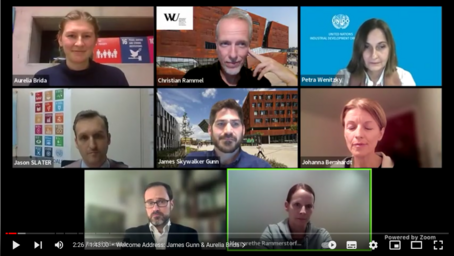
WU Matters WU Talks
Accomplishing the Sustainable Development Goals (SDGs) by 2030 not only requires new mindsets, innovative ideas, and future-oriented solutions but most importantly the commitment of various stakeholders. However, our progress towards implementing the SDGs is too slow. We need stronger collaboration and exchange among academia, business, and society. With experts from SDGs Labs and UNIDO, we discussed what fresh approaches were needed to inspire current and future entrepreneurs to act more sustainably.
Panel discussion:
Johanna Bernhardt, Sustainable Entrepreneurship Expert at Terra Institute and SDGs Labs
Rudolf Dömötör, Director of WU Gründungszentrum
Christian Rammel, Head of RCE Vienna, WU Vienna, STaR
Jason Slater, Chief of Financial Management of Technical Cooperation United Nations Industrial Development Organization (UNIDO)
Petra Wenitzky, Industrial Development Expert, United Nations Industrial Development Organization (UNIDO)
Moderation:
Aurelia Brida, James Gunn (RCE Vienna)
NBS Sustainability Centres Community Workshop 2021 (July 12-15, 2021)
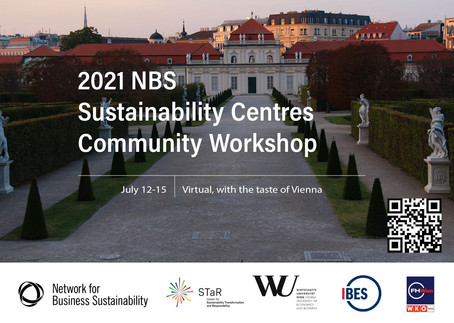
The 2021 Sustainability Centers Community (SCC) Workshop engaged sustainability center leaders in imagining and operationalizing a desirable future. This biannual global event included a multi-sector day open to practitioners, and three days for leaders from the Sustainability Centre Community.
Hosts: The workshop is an initiative of the Sustainability Centres Community (SCC), managed by the Network for Business Sustainability (NBS). Since 2012, the SCC has brought together leaders of sustainability / responsibility centers from business schools and universities around the world to discuss shared challenges and opportunities. The 2021 workshop was a collaboration between NBS, STaR, and the IBES at the University of Applied Sciences for Management & Communication.
Previous workshops were held at Cornell (New York City, US), INSEAD (Fontainebleau, France), Harvard (Boston, US), and Ivey (London, Canada). The next hosts (in 2023) will be MIT Massachusetts Institute of Technology (Boston, US).
2021 Workshop Outputs (program, workshop handbook, session videos, and more):
https://www.nbs.net/articles/sustainability-centres-workshop-2021
Social media: on NBS’ Twitter and LinkedIn, the hashtag #NBSSCC21 brings up great memories.
Interested in regular updates? Subscribe to the NBS Newsletter here: https://www.nbs.net/subscribe
Responsible leadership during the corona crisis (December 9, 2020)
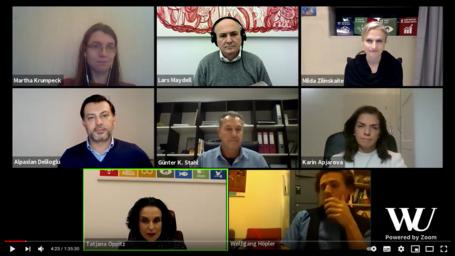
Throughout the COVID-19 crisis, we have seen examples of people from all walks of life demonstrating exemplary leadership – and we have seen decision-makers fail miserably. In all these cases, there are important lessons to be learned. In this second annual STaR-hosted event at the WU Matters WU Talks series, we took a chance to discuss what leadership in a crisis really meant and to identify best practices to help us be better prepared for future crises, as well as an opportunity to celebrate the many everyday leaders who emerged from this crisis and demonstrated responsible leadership.
Recording of the Livestream session is available on Youtube: https://www.youtube.com/watch?v=QVbaqPovDUY&feature=youtu.be
Keynote:
Günter K. Stahl,Co-Director, Competence Center STaRCo-Director, Competence Center STaR
Panel discussion:
Karin Apjarova, Marketing Director, EMEA Key Accounts at Oracle
Alpaslan Deliloglu, CEO & CSO, IKEA GmbH Austria
Wolfgang Höpler, Specialist in Infectious Diseases
Martha Krumpeck, Molecular biologist, climate activist, Extinction Rebellion Austria
Lars Maydell, Executive Coach & Trusted Business Advisor, Maydell Advice GmbH
Moderator:
Milda Zilinskaite, Senior Scietist & Manager at STaR
Intercultural Aspects of CSR Communication (November 20-21, 2020)
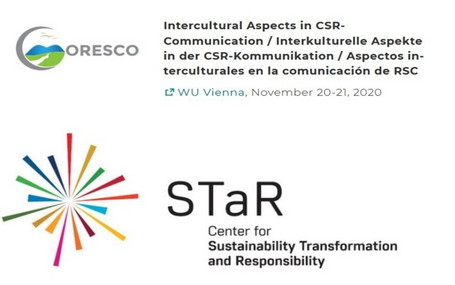
A two-day interdisciplinary conference on CSR and communication? ... in three languages? About a year ago, when our co-hosts - Johannes (Hannes) Schnitzer and Pilar Pérez at the WU Vienna Department of Foreign Language Business Communication and the Research Group on CSR Communication (CORESCO) – invited our team at STaR to co-organize this event, no one among us had a clear idea what direction it would end up taking. Of course, there is a lot of talk in academia about the need to step out of our disciplinary silos and to build new bridges for knowledge exchange. Yet we all know that this is easier said than done. We speak different (disciplinary) languages. We use different methods. We publish in different (and differently ranked) journals. And as for those bridges – often, there is simply not enough time for laying their foundations.
Obviously, there exist many successful interdisciplinary teams of collaborators, born out of personal networks, or coincidental or intentional connections, but focused academic events organized around a clear objective to create space for new types of exchange, are arguably, still not that common of a sight.* Thus, not surprisingly, as organizers, we were simultaneously thrilled and concerned when putting together a program with speakers from the fields of linguistics, communication, management, HRM, international business, and more. Add to that our shared passion for languages (we wanted the presentations to be held in English, German, and Spanish) and the much bigger tribulation of COVID-19 outbreak in the midst of the planning.
Now, that I am writing this reflection a day after the conference has finished, I already know that the event went smoothly. The online aspect did not stop speakers/participants from Australia and Latin America from joining us, the majority on the CET time zone. The sessions in different languages were attended by the average of around 25-30 participants (from the total of nearly 80 total registrations). Most importantly – at least to me personally, “honey to my ears” – many presentations and Q/As ended with comments like “let’s meet up virtually again to discuss this in more detail” or “let me forward you the references on this from our field for review.” The first bricks of a new bridge..?
A big thank you to Hannes and Pilar for making the event happen. And one more Danke/thank you/gracias to all online participants!
The complete program/ Programm / programa is available here.
Presentations by STaR Faculty Members and Intellectual Community affiliates:
Iris Maurer & Michael Müller Camen, “Arbeitsbeziehungen: eine vergleichende Analyse der Nachhaltigkeitsberichterstattung großer chinesischer, deutscher, indischer, japanischer und US-amerikanischer Unternehmen“
Susan Üstün, “Pasos hacia la igualdad de género en el entorno laboral: Usos del lenguaje inclusivo en empresas españolas y chilenas en el sector de energía”
Christof Miska, (keynote) “Culture, institutions, and sustainable development”
Pilar Pérez, “‘Sostenibilidad’ frente a ‘Responsabilidad Social Corporativa’: estudio comparativo de páginas web españolas e hispanoamericanas”
Mirja Kemppi-Pfleger, “Climate change discourse of the European automotive industry”
[*This text was written by Milda Zilinskaite, senior scientist and manager at STaR. The ideas expressed in it are my personal opinions and may not accurately represent those of other persons involved in the described conference]
1st STaR Research Conference on Responsible Innovation (November 22-23, 2019)
The 2-Day conference brought together internationally recognized scholars from various fields and disciplines to further our knowledge of the nature, drivers, and outcomes of Responsible Innovation.
The world is facing economic, social, and environmental challenges of huge proportions. It is clear that tackling the Grand Challenges of our time, such as the ones reflected in the UN Sustainable Development Goals (SDGs), requires concerted efforts by national governments, policy makers, research institutions, business organizations and civil society. Achieving the ambitious targets set out in the 2030 sustainable development agenda will not be possible without innovations in science, technology, law, and other fields on a scale commensurate with that of the challenges we face, as well as transformation of economic systems, business processes and, perhaps most importantly, individual mindsets.
The theme of the 1st STaR research conference was Responsible Innovation (RI). The term responsible innovation was initially used in a rather narrow way to explore the responsibility of science with respect to issues such as research on human subjects, intellectual property, research integrity, etc. However, more recent conceptualizations have taken a broader perspective by considering the variety of actors inside and outside the scientific system that might be involved in innovation processes that contribute to doing good and avoiding harm in the environmental, social and economic domains.
The breadth of the issues concerning RI was reflected in the conference program, in which different aspects of the institutional, economic, legal, and organizational environments were addressed by scholars from disciplines as diverse as international business and management, ecological economics, finance, legal studies, information technology, psychology, and philosophy.
The conference program can be downloaded here.
Written by Günter K. Stahl, Christof Miska, Milda Žilinskaitė
The UN Sustainable Development Goals: Why Should They be Your Business? (November 20, 2019)
SDGs Matter at the WU Matters -STaR hosted its first event at the WU Matters WU Talks series.
When we originally proposed Sustainable Development Goals (SDGs) of the UN 2030 Agenda as the topic for our event at the WU Matters WU Talks public lecture series, we were not entirely sure how the evening would unfold. Although the SDG framework was set by the United Nations back in 2015, the EU’s polling agency Eurobarometer1 has shown that on the average, only one in ten EU citizens is familiar with it. Our own informal survey among 940 WU Vienna students in spring of 2019 revealed similar results. Roughly 11% of the students asked said they had heard of the SDGs, and fewer could name one or two aims of the 17 goals and their 169 targets.
As an academically-rooted sustainability center, we consider it our core responsibility to raise the SDG awareness on and beyond the WU campus. The WU Matters WU Talks event was part of this ongoing effort. STaR Co-Director Günter K. Stahl gave an opening note on the opportunities that the SDGs create for companies. The innovation potential these goals offer also resurfaced in the panel discussion following the keynote address. The panel of experts (coincidentally, first time all-female panel at the WU Matters) included: Co-Director of STaR, ecological economist Sigrid Stagl; Director of Social Innovation at Deloitte Consulting, Elisa Aichinger; Senior Advisor for Environment at OMV, Brigitte Bichler; and the Founder and Managing Director of the virtual farmer’s market Markta, Theresa Imre.
The issues tackled by the panelists concerned the ways in which SDGs can be embedded into different business models, the differences between the SDG framework and other means of fostering corporate responsibility, SDG communication, measuring SDG impact, and the thorny topic of “SDG-washing”. There were, expectedly, differences in opinion as well as healthy disagreements. There were also many concrete best practice examples and useful recommendations.
One question that we as the organizing team ask ourselves after each STaR Center event is whether (and if yes, to what extent) the discussion went beyond scratching the surface. Has it generated thinking, exploring and discovering? In this case, did our WU Matters matter?
Of course, we could not pin this down in numbers, but it did seem that the discussion could have continued for much longer than the allocated 45minutes. The questions from the audience kept coming long after the panelists were off the stage, and of the nearly 340 attendees, many stayed around to continue informal discussions late into the evening. It is greatly rewarding to witness a sense of shared interest within a highly diverse audience of college students (as we learned, from at least four major universities in Vienna), faculty and staff, business practitioners, locals and internationals… Keeping in mind that the SDG17 is “Partnerships for Goals”, we at STaR hope that some of these conversations have created a positive momentum that will continue to propel into the future.
Written by Milda Žilinskaitė, manager and senior scientist at STaR.
1.Special Eurobarometer 445. (2017). 27,929 individuals surveyed across 28 EU Member States. (Fieldwork: 11-12/2016)
Diversity and Inclusion in a global business environment (June 19, 2019)
WU Executive Academy and STaR co-hosted WU Executive Insights: an evening event with Learning & Organization Behavior expert Josefine van Zanten.
Josefine van Zanten has a long, impressive list of leadership positions:Executive in Residence at IMD Business School, former Global Head of Learning and Organization Behavior at LafargeHolcim, former Global VP Diversity and Inclusion at Royal Dutch Shell, to name just a few. However, she opened the evening by talking about very different leadership titles, those we do not tend to hear listed as often in executive events: mother, grandmother, daughter, sister, risk-taker, team builder, passionate proponent of authentic leadership… As several attendees commented later that evening, this personal touch created space for an exceptionally engaging audience discussion, and it was also the perfect way to approach the topic of Diversity and Inclusion (D&I) in organizations.
The terms “diversity” and “inclusion” are often applied interchangeably. However, as discussed by Josefine van Zanten, they differ in important ways. The concept of inclusion means moving beyond the targets and measures of demographic representation associated with the notion of diversity. Inclusion is about providing fair access to resources (for example, sponsoring and not just mentoring women or ethnic minorities), decision-making and career opportunities. It engenders a personal sense of belonging reflected in perceptions of individuals. It is subjective – yet, very importantly, measurable.
Global companies that seek to fully reap the benefits of diversity inevitably focus on inclusion. At the same time, however, it is a highly complex, sensitive topic. Not surprisingly, many of the questions from the audience were about the contradictions and dilemmas that characterize D&I programs across companies, industries and cultures. Key takeaway? Simple but powerful: creating an inclusive workplace is not a destination but a continuous journey.
Comments by event participants:
“Josefine gave a comprehensive overview of Inclusion and Diversity, starting from the clear differences of the terms. The session was not only insightful, but had exercises where groups of participants would be able to challenge their perceptions.” Mari Ono, WU Executive Academy, GEMBA 2018/2019
“One of the best event during the GEMBA 2018/2019 program, very inspirational and insightful thanks to Josefine. Josefine is an excellent female leader, who empowers women and men, able to give them another perception and open door for exceptional inclusion and diversity topic discussion.” Karin Apjarova, WU Executive Academy, GEMBA 2018/2019
“Josefine van Zanten captured the audience with deep practical and easily translated key input of how diversity and inclusion matter to improve each organization's results in the bottom line. She managed to transfer highly complex insights in an exceptionally quick and personal way and gave clear advice how to successfully implement diversity and inclusion strategies in different surroundings.” Christa Gschweitl, Female Leadership Network of WU Executive Academy
If you have additional comments, best practice examples, or ideas of how to move things forward please do not hesitate to email us at star@wu.ac.at.
Written by Milda Žilinskaitė, manager and senior scientist at STaR
ChangEDucation: 6. WU Nachhaltigkeitstag / Sustainable Transformation Day (May 14, 2019)
The WU Nachhaltigkeitstag / WU Vienna Sustainable Transformation Day took place for the 6th consecutive year on May 14, 2019, under the title ChangEDucation. It was a collaborative initiative, organized by STaR, WU Umweltmanagement, and representatives of several student organizations: ÖH WU, oikos Vienna, össfo, and forum n. Though a long standing tradition at our university, this year’s event had several new features: it was longer (a full day, with six specialized Workshops), more inclusive of non-German speakers, and it introduced a thematic focus around the UN Agenda 2030 SDGs, namely – SDG4 (Quality Education).
The SDGs are at the heart of the work of the over fifteen non-profit and student organizations represented at the all-day ChangEDucation forum. They were also the focal point of small-group discussions (“Kamingespräche”), moderated by Helene Dallinger (oikos Vienna), where forum participants and event visitors had the opportunity to share their views and concerns regarding sustainable development, ask critical questions, and propose creative solutions. Some spoke about frustrations, others expressed optimism, and not surprisingly, many shared both.
The above, and other related issues, were further tackled during the panel discussion at the end of the day. Our diverse group of panelists included: Viola Christian (Ban Ki-moon Center for Global Citizens), Jesus Crespo Cuaresma (Head of the WU Institute for Macroeconomics), Gillian Joanne Foster (Researcher and Former e-Developer at the WU Institute for Ecological Economics), Benjamin Seyer (student representative, sustainability unit of ÖH WU), and Johanna Warm (staff member at WU Vienna Teaching and Learning Development). The panelists discussed the importance of critical thinking, transferrable skills, role-modeling, and the integration of sustainability awareness into business school curriculum, within and beyond the classroom experience. The core of discussion is well reflected in an email from a member of the audience (external to WU) that STaR team received the day after the event. The letter reminded us all that: “Target 4.7 of the SDGs is for each and every person, and in order to achieve sustainability and regeneration (in a very holistic sense), they have to permeate deeply into all fields of study and inquiry, not only making them part of our way of thinking but more so of being a sustainable/ regenerative human.”
If you have additional comments, concerns or ideas of how to move things forward please do not hesitate to email us at star@wu.ac.at.
For the readers of this post, thank you for your attention, and for all of those who have been involved in ChangEDucation: we know it is not always easy, but keep the hard work up!
Event coordinators: STaR Fellows Marlene Gruber and Laura Bauer
Core organizing team: Gregor Bauer, Sarah Beranek, Marius Brand, Sebastian Bruckbauer,Beata Boor, Helene Dallinger, Clara Hofer, Christian Hütter-Schrottenbaum, Daniel Preglau, Renata Krenn, Livia Regen, Benjamin Seyer, Susan Üstün Eva Wagner, Ulrich Weber, Rainer Wicke.
We would also like to extend a special thanks to our on-site volunteers and to Josefine Schulze (for her creative graphic recording during the panel discussion)!
This text was written by: Milda Žilinskaitė, manager and senior scientist at STaR
ChangEDucation: Workshop Feedback
Here is some participant feedback from the ChangEDucation Workshops:
"It was fantastic!"
"Great start for a reflection on myself and a reminder that I can have an impact. Would be intereseted in a follow-up"
"Interesting facts and good exercises with enough time for discussion"
"Very informative, lots of points and perspectives"
"I'd like to suggest an international project to exchange experiences with South American NGOs (in Brazil). I would like to invite WU students to get to know our work better" (if you are interested in such collaboration, STaR is happy to put you in contact with the author of this message).
Skilled Migrants in Austria: Needed but Unwelcome? (April 10, 2019)
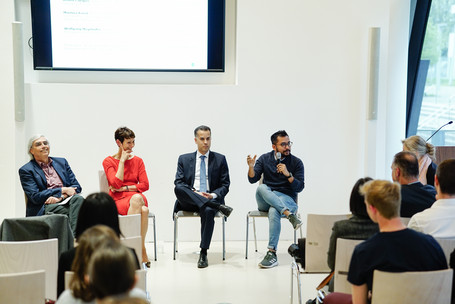
The public panel discussion “Skilled Migrants in Austria: Needed but Unwelcome?” owes its inspiration to the ongoing research on migration at WU Vienna, where several groups of investigators across different academic disciplines are working on topics related to this important issue. The open-to-public event on April 10 was followed by a two-day specialized academic workshop on global migration, co-hosted by STaR and the WU Vienna Department of Management, in cooperation with the Journal of World Business.
We are delighted that the panel discussion brought together an incredibly diverse audience, and we would like to thank all of those who attended! We also appreciate individual email inquiries and encouragement for future endeavors we received following the event.
The evening was opened by WU Vienna International Business department professor Günter Stahl, who as of January 2019, together with professor Sigrid Stagl at the Ecological Economics Department, are academic directors of STaR.
An introductory note was given by Aida Hajro (Brunel University London and WU Vienna). Hajro pointed out to some of the pressing issues surrounding global labor migration, including wrong-headed immigration and integration policies at the state level, and societal misconceptions regarding immigration. She further addressed immediate implications for international business and trade, describing the increasing pressure by intergovernmental and non-profit organizations for the private sector to ensure greater adherence to migrant employees’ human and labor rights.
The evening’s panelists came from highly diverse cultural and professional backgrounds [for more on speakers’ profiles, please click here] and offered many valuable insights into the challenges skilled migrants face in Austria. For example, WU Vienna professor Wolfgang Mayrhofer discussed the socio-historic context of Austria as a not-traditionally immigrant receiving country and described the difficulties with labor market entry, over-qualification, and higher social acceptance of some migrant groups over the others, in relation to the broader societal context. HR expert Martina Ernst listed the major challenges for skilled migrants from the industry perspective. She also commented on the needs of firms that seek to hire qualified migrants (e.g., meeting potential candidates in their home countries, dealing with administrative obstacles, lack of collaboration between private sector and the government). Finally, we are particularly thankful to Kaiser Ahmed and Bruno Campos –successfulhighly qualified migrants who live and work in Austria – for providing real-life examples illustrating the bureaucratic hurdles, societal-level obstacles, career difficulties, but at the same time, also opportunities and personal success stories. Overall, all four panelists agreed that concrete infrastructural improvements have to be made in order for Austria to meet its current economic demand for highly qualified workforce.
One major impression, voiced not only by the panelists but also by several people in the audience, is that it is critical to raise more public awareness of the topic. On this note, STaR will seek for the conversation to continue, and we invite anyone interested in skilled migration (whether or not you have experienced it yourself) to contact us at star@wu.ac.at.
Author (event moderator): Milda Žilinskaitė
![[Translate to English:]](/fileadmin/wu/_processed_/6/1/csm_090-Laptop-960_v1_c56ab3f364.jpg)
